|
Truthfully, there is no fraternal brotherhood quite like Omega Mu at the University of Maine. We are proud of our history, and we are proud of the impressive number of fraternal brothers who played on many University of Maine athletic teams. In addition, we are equally proud of our brothers participated achieved national and international recognition in sports With conviction and commitment, our Omega Mu athlete brothers brought a great deal of joy and satisfaction to the university community, creating many wonderful memories since the first baseball team was established at Maine State College in the 1870's. The worked together for the success of each Maine team, and the overall civic good of the University of Maine. The sheer number of Omega Mu athlete brothers is an unqualified triumph for the University of Maine. Their positive impact on the University of Maine community cannot be overstated. They each gave their best efforts on each team, and what they achieved perfectly compliments what we fraternally believe: drive and determination. It is a heady athletic legacy. Accordingly, their accomplishments claim our fraternal attention and respect. For the eminence of their athletic success; and, above all, for being our Omega Mu brothers, we are proud. Therefore, in the linked soul and spirit of our long fraternal history, we gratefully remember and celebrate our QTV and Omega Mu brothers who participated on many varsity athletic teams at the University of Maine. Our scorecard is deep, and we appreciate, and we are proud of, all of our Omega Mu athlete brothers. Thoreau said it best: “What a difference, whether in all your walks, you meet only strangers, or in one house is one who knows you, and whom you know. To have a brother…How rare these things are.” How true that is, and we remain that way to this day. Omega Mu Athlete Karl F. Switzer, 1926 Omega Mu Years "Snappy music was supplied by Shea's four piece orchestra." Rhodes Scholar Candidate "Select Four Maine Men To Compete For Rhodes Scholarship Committee Names Barrows, Pressey, Switzer, And Engstrom." Our Omega Mu Brothers Rhodes Scholar Candidates: Switzer and Engstrom Crew Champion Although Karl F. Switzer did not play on any intercollegiate athletic team at the University of Maine, he was a member of several championship rowing teams, in fours and doubles, in Canada and the United States. Most significantly, he won the singles crew championship of eastern Canada. Also, in 1923 he competed against Arthur Belyea, the Canadian singles sculling champion, and American Garrett Gilmore, the World's single sculling champion, and he lost to both by mere inches. Both Belyea and Gilmore represented Canada and the United States in the 1924 Olympics in France. Arthur Belyea Garrett Gilmore Match Scull Race Winner: Carl Switzer "Carl Switzer of the Batchelder Barge Club, of Philadelphia, winner of the match race for single scullers...came from behind to win handily over a high class field." Charles River Basin “What if the space be long and wide, That parts us from our brother’s side A soul-joined chain unites our band, And memory links us hand in hand.” (Phi Gamma Delta fraternity song) Fraternally,
Chip Chapman, ’82 Perge
0 Comments
Our Omega Mu brothers who served in the military are cherished and constant fraternal friends, and we would like to say thank you for the steadfast, purposeful commitment you made to our nation to defend those four freedoms we all believe in: “Freedom of speech, freedom of worship, freedom from want, and freedom from fear.” For those brothers who were killed in defense of these freedoms, they will always occupy a consecrated place in our linked fraternal heart because they exemplify the idea of superlative commitment, strength, and fortitude for the good to the end itself. The greatness of their collective purpose and will, on our nation’s behalf, will never be forgotten. By their “clear-eyed faith and fearless heart,” these brothers have left us a fraternal legacy that echoes what we often say about Omega Mu Fijis: “Perseverance and determination are omnipotent.” Their code of integrity, courage, duty, responsibility, and self-sacrifice on behalf of our nation is a powerful legacy that we will always be proud of as Omega Mu Fijis. Whether it was at New Orleans, Red River, Fort Blakely, Marianna, San Juan Hill, Santiago de Cuba, Chateau-Thierry, Verdun, D-Day, El Guettar, Elba, Monte Della Vedetta, the Battle of the Bulge, Rabaul, Inchon, Pusan, Chosin Reservoir, Pork Chop Hill, Hue, Easter Offensive, Phu Cat, The Iron Triangle, Hamburger Hill, la Drang Valley, Bien Hoa, Khe Sanh, Rumaila, Al-Batin, Medina Ridge, Kabul, Kandahar, our Omega Mu brothers have demonstrated devotion to duty in defense of freedom and liberty. They are the stability of our nation, and we, the Omega Mu brotherhood, revere, honor, and salute their persevering and determined spirit within our great nation and our historic brotherhood. We will always honor the heroism of all of our brothers who have served in the armed forces from the Civil War to the present. Thank you. Omega Mu Veteran Edwin G. Logan, 1952 Omega Mu Years Mrs. Butts, Omega Mu Housemother 1950 Snow Sculpture "WE WAS ROBBED" 1952 Snow Sculpture Edwin G. Logan was a second lieutenant in the 9th Infantry Regiment, 2nd Division during the Korean War, and he retired a colonel. Korean War Memorial, Washington D.C. “What if the space be long and wide, That parts us from our brother’s side A soul-joined chain unites our band, And memory links us hand in hand.” (Phi Gamma Delta fraternity song) Fraternally,
Chip Chapman, ’82 Perge University Of Maine Advisory Board Brothers Looking back and forward is a good thing, always! And, as we all know, our rich history is self-evident at the University of Maine, and we continue to have a unique and privileged relationship with the University of Maine because we were the first established brotherhood at the university that is now 150 years old. Consequently, we have an abiding respect and stewardship toward the university because our fraternal fingerprints are all over the grounds of the university. In our history, many of our brothers have been professors, department chairman, and even interim presidents at the University of Maine. That sense of commitment to the university continues with many brothers who have served on various advisory boards with a deep sense of care, responsibility, experience, energy, and commitment in the business and engineering departments. They are champions for the University of Maine. With enthusiasm and generosity of time, these Omega Mu brothers brought a wide array of professional experience professional, accomplishments, technical expertise, insights, and skills to these respective advisory boards to generate strategic ideas, new initiatives, and strategic objectives in how to improve the reputation for excellence in the engineering, forestry, and business schools at the University of Maine. Although their work is largely behind-the-scenes, each of them have made significant contributions to the University of Maine with their technical experience and educational vision to raise the standard of excellence in these respective academic fields for the students at the University of Maine. Personally and professionally, with passion and motivation, through their tireless work on these various advisory boards, these brothers have shown the importance of innovative leadership in order to ensure that University of Maine students are challenged to think critically and innovatively to tackle and address real-world issues with confidence in business and engineering. These brothers understand that the University of Maine must continue to refine and improve all academic areas in order to attract students, and that the education that they receive in engineering and business will be exceptional, and most of all, relevant. These brothers were great mentors in working for these things by their guidance, insight, advice, counsel, and recommendations on their respective University of Maine advisory boards. These brothers are committed to the university and contributing their knowledge and skill to make the academic experience more enriching, robust, and challenging for students majoring in business and engineering in order to address 21st century issues in each of these areas. In truth, they are the concrete expression of our fraternal belief in committed stewardship. Thus, they embody the very best of our winning fraternal tradition of excellence that we are proud of as Omega Mu Fijis. In conclusion, our rich history is self-evident at the University of Maine, and in the broad, rich scope of our 150 year history at the University of Maine, as the oldest fraternal brotherhood at the University of Maine, we have a great deal to be proud of as a brotherhood. More importantly, we remain steady, unwavering, and committed to sustain our rich history at University of Maine for another 150 years. Our Omega Mu brothers who have served on various advisory boards at Maine are a continuation of our long, common historic root of brotherly commitment to the University of Maine community. This, I think, says everything about the rich legacy of our brotherhood at the University of Maine. The implications of their work have life-long significance. And, perhaps most importantly, their work on these advisory boards improved the academic life for University of Maine students. So, is it any wonder, that these brothers, like generations of Q.T.V. and Phi Gamma Delta brothers before them, continue to add to our growing, rich history on the grounds of the University of Maine. Day-after-day, year-after-year, decade-after-decade, we do not quit. We persist and persevere, and we will for another 150 years. Just as we cherish and honor our historic fraternal home, our resilient 150 history at Maine, we honor these brothers who have worked hard, with intellectual depth and understanding of their particular field of knowledge, to make the University of Maine a great place to attend to receive a quality education in business and engineering. We are grateful for all that they have done for each of these University of Maine education departments. Each of them, truly, are remarkable brothers, admirable in every respect in their work for the university! They are exemplary examples of brotherly goodwill in their work for the greater good, the commonweal, of the university community, and I can only assume that there will continue to be Omega Mu brothers who will take up the responsibility to work hard for the academic well-being of various advisory boards at Maine well into the future, just as our Q.T.V. brothers played a key role at the university within a decade of its founding. It is an outstanding legacy of passion and dedication throughout our 150 year fraternal history. In summary, in the long, transformative historic journey of the University of Maine, countless generations of our fraternal brothers have helped make the University of Maine grow and improve into what is today through their unwavering commitment and dedication. In fraternal name, fraternal history, and fraternal commitment, we have a great deal to be proud of as the oldest brotherhood at the University of Maine! So, in recognition of their generous service on University of Maine advisory boards, we honor the following Omega Mu Brothers with heart, soul, and deep fraternal appreciation and gratitude. We are grateful for each of them! Perge. Business Management Advisory Board, Joel P. Gardiner Chemical Engineering Advisory Board, Dave B. Rushton Advisor For The College of Engineering, Stephen W. Swan Mechanica Engineering AdvisoryBoard, Douglas H. Banks Electrical Engineering Advisory Board, John D. Strout “What if the space be long and wide, That parts us from our brother’s side A soul-joined chain unites our band, And memory links us hand in hand.” (Phi Gamma Delta fraternity song) Fraternally,
Chip Chapman, ’82 Perge Our Omega Mu brothers who served in the military are cherished and constant fraternal friends, and we would like to say thank you for the steadfast, purposeful commitment you made to our nation to defend those four freedoms we all believe in: “Freedom of speech, freedom of worship, freedom from want, and freedom from fear.” For those brothers who were killed in defense of these freedoms, they will always occupy a consecrated place in our linked fraternal heart because they exemplify the idea of superlative commitment, strength, and fortitude for the good to the end itself. The greatness of their collective purpose and will, on our nation’s behalf, will never be forgotten. By their “clear-eyed faith and fearless heart,” these brothers have left us a fraternal legacy that echoes what we often say about Omega Mu Fijis: “Perseverance and determination are omnipotent.” Their code of integrity, courage, duty, responsibility, and self-sacrifice on behalf of our nation is a powerful legacy that we will always be proud of as Omega Mu Fijis. Whether it was at New Orleans, Red River, Fort Blakely, Marianna, San Juan Hill, Santiago de Cuba, Chateau-Thierry, Verdun, D-Day, El Guettar, Elba, Monte Della Vedetta, the Battle of the Bulge, Rabaul, Inchon, Pusan, Chosin Reservoir, Pork Chop Hill, Hue, Easter Offensive, Phu Cat, The Iron Triangle, Hamburger Hill, la Drang Valley, Bien Hoa, Khe Sanh, Rumaila, Al-Batin, Medina Ridge, Kabul, Kandahar, our Omega Mu brothers have demonstrated devotion to duty in defense of freedom and liberty. They are the stability of our nation, and we, the Omega Mu brotherhood, revere, honor, and salute their persevering and determined spirit within our great nation and our historic brotherhood. We will always honor the heroism of all of our brothers who have served in the armed forces from the Civil War to the present. Thank you. Omega Mu Veteran Fred E. Clark, Jr., 1953 Omega Mu Years Omega Mu Years Mrs. Butts, Omega Mu Housemother Fiji Island Party In The Castle 1952 Snow Sculpture University of Maine Athlete Military Career Fred E. Clark, Jr. served 30 years in the United States Marine Corps, and he retired as a colonel. He served in Vietnam and 20 other duty stations during his military career. “What if the space be long and wide, That parts us from our brother’s side A soul-joined chain unites our band, And memory links us hand in hand.” (Phi Gamma Delta fraternity song) Fraternally,
Chip Chapman, ’82 Perge With singular determination, exemplifying the very heartbeat of persistence and determination, many of our brothers, over the last 150 years, made significant achievements in business, science, and education. Therefore, it is appropriate that we honor each of these distinguished brothers this year, our 150th fraternal year, for receiving honorary degrees from the the University of Maine. With fraternal pride, affection, and gratitude we recognize, honor, and applaud the fraternal character, tireless efforts, and extraordinary achievements of each of these brothers. They each made an indelible mark in their career fields, and some gained national and international recognition. Truly, each of them were distinct in their success because persistence and determination were truly inseparable for each of them. In truth, and in no small part, they are a living testimony to the truth of these words, and we celebrate these two words that continue to bind our Omega Mu brotherhood. Consequently, each of these brothers merit our praise, and we fraternally honor each of them for the formidable skill of their individual efforts that they exhibited in their diverse career fields. Their collective legacy of success lives on in the memory of our historic brotherhood. With a celebratory nod to our glorious 150 year history at the University of Maine, and to these brothers, we look forward with enthusiasm to our fraternal future and the many young men who go on and do things in their career fields to improve the world. At its root-heart, fraternal life can teach young men how to live the best possible life in the service of others with inspirational enthusiasm and dedication. This is, perhaps, the best thing that continues to occur with generations of Omega Mu brothers today in doing something that is positive and fulfilling in their careers with dedication, maturity, and commitment to make a difference. Perge. George P. Merrill Carroll S. Chaplin Dean James N. Hart Raymond Fellows Ray P. Stevens Charles A. Morse Edward F. Danforth Paul Cloke Raymond Fellows Windsor P. Daggett Raymond W. Davis Oliver S. English “What if the space be long and wide, That parts us from our brother’s side A soul-joined chain unites our band, And memory links us hand in hand.” (Phi Gamma Delta fraternity song) Fraternally,
Chip Chapman, ’82 Perge Our Omega Mu brothers who served in the military are cherished and constant fraternal friends, and we would like to say thank you for the steadfast, purposeful commitment you made to our nation to defend those four freedoms we all believe in: “Freedom of speech, freedom of worship, freedom from want, and freedom from fear.” For those brothers who were killed in defense of these freedoms, they will always occupy a consecrated place in our linked fraternal heart because they exemplify the idea of superlative commitment, strength, and fortitude for the good to the end itself. The greatness of their collective purpose and will, on our nation’s behalf, will never be forgotten. By their “clear-eyed faith and fearless heart,” these brothers have left us a fraternal legacy that echoes what we often say about Omega Mu Fijis: “Perseverance and determination are omnipotent.” Their code of integrity, courage, duty, responsibility, and self-sacrifice on behalf of our nation is a powerful legacy that we will always be proud of as Omega Mu Fijis. Whether it was at New Orleans, Red River, Fort Blakely, Marianna, San Juan Hill, Santiago de Cuba, Chateau-Thierry, Verdun, D-Day, El Guettar, Elba, Monte Della Vedetta, the Battle of the Bulge, Rabaul, Inchon, Pusan, Chosin Reservoir, Pork Chop Hill, Hue, Easter Offensive, Phu Cat, The Iron Triangle, Hamburger Hill, la Drang Valley, Bien Hoa, Khe Sanh, Rumaila, Al-Batin, Medina Ridge, Kabul, Kandahar, our Omega Mu brothers have demonstrated devotion to duty in defense of freedom and liberty. They are the stability of our nation, and we, the Omega Mu brotherhood, revere, honor, and salute their persevering and determined spirit within our great nation and our historic brotherhood. We will always honor the heroism of all of our brothers who have served in the armed forces from the Civil War to the present. Thank you. Omega Mu Veteran John T. Clark, 1938 Omega Mu Years "The Phi Gam's crashes through with a hilariously different party last Friday evening." "Larry Miller's Bears" "The committee consisted of Howard Stagg, Stanley Dunlap, Norman Carlisle, John Clark and Elwood Addition." Crimson Rambler Homecoming Dinner Brothers that I can identify in are George Hamlin, right, second person down; Ted Curtis is the seventh person down. University of Maine president, Arthur Hauck, is seated in the middle table between two women, left. The Crimson Rambler From multiple angles, our QTV and Omega Mu brothers have enriched the civic life at the University of Maine, and we are fortunate to have had many hardworking, talented brothers throughout our history. The balance between our athletic involvement, intellectual pursuits, and campus involvement is outstanding. In each area of involvement, our brothers brought energy and enthusiasm, and one particular area where our brothers brought particular depth and color was in many wide-ranging Maine Masque theater productions. With fraternal strength, Omega Mu brothers became mainstays on the theater boards when Maine Masque was established in 1906-1907. What a long-lasting accomplishment for all of us to be proud as Omega Mu brothers. Over the years, our Omega Mu brothers have been involved in many Maine Masque productions, including Charles L. Pfeiffer, Malcolm E. Fassett, Harry Lovely, John D. Carlisle, Nathan F. True, Fernando T. Norcross, Theodore W. Haskell, Charles E. Stickney, Robert Irvine, William Demant, Evans B. Norcross, J. Richard Buck, Willam Keith, Harry P. Carle, Howard L. Farwell, Jacob M. Horne, Jr.; Bryant M. Patten, Sumner Waite, Norman D. Carlisle, Paul F. Slocum, Clifford H. George, Ernest F. Andrews, Robert S. Hussey, Elwood D. Bryant, Howard J. Stagg, III; Stanley T. Fuger, John T. Clark, John W. Ballou, George R. Berger, Robert D. Parks, Arthur B. Conner, Louis H. Thibodeau, Henry S. Simms, along with many others! Praise for them is merited. Exhibiting diligence and discipline, these Omega Mu brothers, through many decades, brought a joyful vibrancy and communal vitality to the University of Maine community. What a superb gift to give the community, rich, alive, and inspiring. Significantly, many of our Omega Mu brothers were a driving force in many of the plays because of the impactful, leading roles that they often played, luring and capturing the imagination of the audience as they moved and glided, with apparent ease and poise, on the theater boards. By all reports in the Maine Campus and the Bangor Daily, their performances were quit affecting. The quality and depth of their disciplined art form joyfully enriched the lives of countless numbers of people. Our Omega Mu Maine Masque theater brothers, just like our athlete brothers, are an enriching testament to what it means to be a fraternity brother in Omega Mu, and we are proud of their dedication, creativity, and commitment in adding such an important historic angle in our fraternal history at the University of Maine. They exemplify the good of what it means to be a positive part of the university community, and in doing so showing the good of fraternal culture. Attending a play is a special, spirited experience, and we are proud of the legacy of these brothers for their unbending commitment to the beautiful creative art and discipline of Maine Masque theater productions. These Maine Masque theater brothers make us proud, and their legacy in Maine Masque history continues to shine. They, too, like our Omega Mu athlete brothers, continue to enrich and strengthen our perseverant and determined fraternal identity, 150 years strong. "Dorothy Sawyer, John Clark To Play Leads" "Portland Boy Has Lead Maine Masque" "Playing opposite of here will be John Clark who will be making his first appearance for the Maine Masque. He has had experience in theatrical work before coming to Maine and is showing much promise of giving a polished and satisfactory performance when the play is offered." "John Clark as the agent for Mrs. Burke Smith." World War II John Clark was the personal pilot for Admiral R. K. Turner in the Pacific Theater of operations during World War II. Navy Admiral R. K. Turner “What if the space be long and wide, That parts us from our brother’s side A soul-joined chain unites our band, And memory links us hand in hand.” (Phi Gamma Delta fraternity song) Fraternally,
Chip Chapman, ’82 Perge From multiple angles, our Q.T.V. and Omega Mu brothers have enriched the civic life at the University of Maine, and we are fortunate to have had many hardworking, talented brothers throughout our history. The balance between our athletic involvement, intellectual pursuits, and campus involvement is compelling. What they accomplished in their respective pursuits at the university constitutes a wonderful achievement in our fraternal history. There efforts were good and laudable, and there efforts represented the very best of our core values of persistence and determination. It is, believe me, a wonderful achievement, on the part of generations of Omega Mu brothers, for the respective gifts that they gave for the civic good at the University of Maine. In our historically calm, customary fashion, 149 years and growing, it was a rich yield for the common good of the Maine community, All of them, through their various commitments and endeavors within the University of Maine community, improved and brightened up the quality of life of the university community with their enthusiasm and dedication to their respective University of Maine teams, organizations, and clubs. They each had uniques strengths as actors, artists, musicians, athletes, and journalists, and they all embodied the shared commitment to do something well for the University of Maine community. Fraternally integrity demands that, and we are proud of all of these brothers. Over the years, many of our Omega Mu brothers held leadership roles on various University of Maine newspapers and yearbooks. Their contributions in creating something good in the university community cannot be overstated. "Good" does not, in reality, do justice in acknowledging their positive contributions. Each of them performed a vital function for the University of Maine community. They had a willingness to work, the willingness to accept challenges, in order to be focused, informative journalist in order to create daily newspapers and yearbooks that were interesting and informative. Their leadership style was authentic, and their generous, laborious work deserve praise and recognition in our brotherhood. They collected information, organized information, checked and re-checked facts, shared ideas, read and re-read every article, and proofed and re-proofed every page in the yearbook. They always gave of their time and talent in attending to each of these elements in order to write commendable, informative, and properly edited newspaper articles, and in sifting through thousands of pictures and thoughtfully crafting, shaping, and editing yearbooks. Their hard work, in turn, was to produce something, whether it was the university newspaper or yearbook, that was well-written, well-edited, and journalistically constructive, interesting, meaningful, and significant, in the short or long term. With drive and persistence, what our Q.T.V. and Omega Mu brothers achieved, in their numerous leadership roles on various newspapers and yearbooks, was complementary to everything we fraternally applaud for all of or brothers who were positively involved in the University of Maine community. What they achieved had real, enduring worth and value for the University of Maine community. They were indispensable. They made lasting contributions to the social well-being of the university community in keeping students well-informed and enlightened. These Omega Mu brothers embodied our old fraternal truth in being perseverant and determined in being faithful and generous with their gifts. In other words, our journalist brothers are a testament to our collective fraternal spirit of genuine integrity, industry, dedication, creativity, and commitment in adding to our long-standing history of civic engagement at the University of Maine. The noble ideals of our linked fraternal brotherhood started in 1848 and 1874, and our fraternal wheels have not stopped turning in continuing to create a generationally great brotherhood, and there will not be a breakdown. With enthusiasm and dedication, we will continue to build upon our unique fraternal legacy at the University of Maine for many decades come! It is exciting and rewarding to know that we will continue to have a great fraternal future because we have an undisputed claim to durable greatness in being the oldest, most dedicated fraternal brotherhood at the University of Maine. Again, again, and again, we have always gotten on with the job of continuing to be the standard of fraternal excellence. And so, the passage of our 149 fraternal years will never stop us from honoring the rich legacy of those years as we look fraternally forward to the rich promise of our fraternal future! Perge. Omega Mu Portrait Norman A. Porter, 1931 Omega Mu Years Crimson Rambler Orchestra "The house was decorated with colored lights. During intermission refreshments were served." "New Editor (Men)...Norman A. Porter" "Editor-in-Chief...Norman A. Porter" “What if the space be long and wide, That parts us from our brother’s side A soul-joined chain unites our band, And memory links us hand in hand.” (Phi Gamma Delta fraternity song) Fraternally,
Chip Chapman, ’82 Perge From multiple angles, our Q.T.V. and Omega Mu brothers have enriched the civic life at the University of Maine, and we are fortunate to have had many hardworking, talented brothers throughout our history. The balance between our athletic involvement, intellectual pursuits, and campus involvement is compelling. What they accomplished in their respective pursuits at the university constitutes a wonderful achievement in our fraternal history. There efforts were good and laudable, and there efforts represented the very best of our core values of persistence and determination. It is, believe me, a wonderful achievement, on the part of generations of Omega Mu brothers, for the respective gifts that they gave for the civic good at the University of Maine. In our historically calm, customary fashion, 149 years and growing, it was a rich yield for the common good of the Maine community, All of them, through their various commitments and endeavors within the University of Maine community, improved and brightened up the quality of life of the university community with their enthusiasm and dedication to their respective University of Maine teams, organizations, and clubs. They each had uniques strengths as actors, artists, musicians, athletes, and journalists, and they all embodied the shared commitment to do something well for the University of Maine community. Fraternally integrity demands that, and we are proud of all of these brothers. Over the years, our Omega Mu brothers have been involved in many musical productions at the University of Maine, and praise for them is merited. With the same unconditional focus, diligence and discipline as our athlete brothers, our musically focused brothers, through many decades, brought richness ands joy to the University of Maine community because of their involvement on various bands, orchestras, and choral groups. Their commitment was compelling, and the quality and depth of their art form enriched the lives of countless generations of students at the university, as well as many towns and cities throughout Maine and New England. Generously, with never-ending joy and inspiration, they always gave of their time and talent for the good in all of their musical performances. The embodied our old fraternal truth in being perseverant and determined in being faithful and generous with their beautiful musical gifts. Our Omega Mu Maine music brothers, just like our athlete and Maine Masque brothers, are an enriching testament to what it means to be a fraternity brother in Omega Mu. We remain proud of their dedication, creativity, and commitment in adding such a rich angle in our fraternal history at the University of Maine. Above all, what a superb gift to give anyone: music. Omega Mu Portrait Frederick D, Southard, 1907 Omega Mu Years "The Omega Mu chapter of Phi Gamma Delta fraternity started off the social events for the new year by giving ...one of the most delightful dances ever held in the gymnasium." "College Hymn...F. D. Southard" Ivy Day, 1906 "Odist...F. D. Southard" "Odist...Frederick Dean Southard" "Leader F. D. Southard, '06" “What if the space be long and wide, That parts us from our brother’s side A soul-joined chain unites our band, And memory links us hand in hand.” (Phi Gamma Delta fraternity song) Fraternally,
Chip Chapman, ’82 Perge Our Omega Mu brothers who served in the military are cherished and constant fraternal friends, and we would like to say thank you for the steadfast, purposeful commitment you made to our nation to defend those four freedoms we all believe in: “Freedom of speech, freedom of worship, freedom from want, and freedom from fear.” For those brothers who were killed in defense of these freedoms, they will always occupy a consecrated place in our linked fraternal heart because they exemplify the idea of superlative commitment, strength, and fortitude for the good to the end itself. The greatness of their collective purpose and will, on our nation’s behalf, will never be forgotten. By their “clear-eyed faith and fearless heart,” these brothers have left us a fraternal legacy that echoes what we often say about Omega Mu Fijis: “Perseverance and determination are omnipotent.” Their code of integrity, courage, duty, responsibility, and self-sacrifice on behalf of our nation is a powerful legacy that we will always be proud of as Omega Mu Fijis. Whether it was at New Orleans, Red River, Fort Blakely, Marianna, San Juan Hill, Santiago de Cuba, Chateau-Thierry, Verdun, D-Day, El Guettar, Elba, Monte Della Vedetta, the Battle of the Bulge, Rabaul, Inchon, Pusan, Chosin Reservoir, Pork Chop Hill, Hue, Easter Offensive, Phu Cat, The Iron Triangle, Hamburger Hill, la Drang Valley, Bien Hoa, Khe Sanh, Rumaila, Al-Batin, Medina Ridge, Kabul, Kandahar, our Omega Mu brothers have demonstrated devotion to duty in defense of freedom and liberty. They are the stability of our nation, and we, the Omega Mu brotherhood, revere, honor, and salute their persevering and determined spirit within our great nation and our historic brotherhood. We will always honor the heroism of all of our brothers who have served in the armed forces from the Civil War to the present. Thank you. Omega Mu Veteran Charles E. Furbish, 1948 Omega Mu Life Omega Mu Housemothers Mrs. Houston and Mrs. Hewitt World War II Charles E. Furbish served in the 84th Infantry Division during World War II. "The 84th Division has a history reaching back to Abraham Lincoln and the Black Hawk Indian War of 1832." The 84th played a key role in the defense of St. Vith, Belgium, during the early stages of the Battle of the Bulge. "The division's troops held their positions against fierce German assaults, delaying the enemy's advance and buying time for other Allied unites to reinforce the area." “What if the space be long and wide, That parts us from our brother’s side A soul-joined chain unites our band, And memory links us hand in hand.” (Phi Gamma Delta fraternity song) Fraternally,
Chip Chapman, ’82 Perge Our brothers careers have been productive, constructive, spirited, and prosaic. They displayed impressive skills, talents, and abilities They were, and we continue to be, a beautiful and lively expression of our enduring fraternal beliefs, and that underlying harmony is far-reaching in expectation for all brothers’, undergraduate and graduate. It is the core of what our fraternal founders asserted in 1848 and 1874 and 1899: to live active, commendable, and responsible lives, and to build up community. Clearly and compellingly, they added, and continue to add, positive value at the local, state, national, global, and fraternal level because they engaged life fully and responsibly. In short, they were authoritative pillars throughout life. They were-are exemplary in their citizenship, character, and their sense of dutiful responsibility, and, in many instances, they were leading voices in their career fields. They prove that success of any kind does not occur by luck or accident, and we remember them because they continue to provide that message for our time. Their spirit permeates our brotherhood, and it always will. We have long been, from one generation to the next, proud to be Omega Mu Fijis. We continue to cherish our fraternal friendships, our shared memories, and our evolving, forward-focused history at the University of Maine. These things, above and beyond everything else, are the underlying rooted connections that make us proud to be Omega Mu Fijis. Why, after all, should we believe otherwise? We have always exhibited a can-do fraternal spirit since 1874. And, to be sure, all present and future generations of Omega Mu Fijis will continue to do the same, with fraternal enthusiasm and commitment. As a brotherhood, we always see the path behind us and the way forward with equal clarity, and our future remains bright at 79 College Avenue because we fearlessly move forward, always guided by sound fraternal principles, and because of that we are an exceptional brotherhood because we remain committed and hardworking to assure that our Omega Mu brotherhood will continue to be the jewel at the University of Maine. Perge. Omega Mu Portrait LeRoy H. Harvey, 1901 18. Leroy H. Harvey Frank E. Kidder, our Q. T. V. brother, was the architect who designed our first Phi Gamma Delta Castle. Prophecy...Leroy H. Harvey University of Maine Athlete Leroy H. Harvey is in the middle row, third one in from the left. Leroy H. Harvey is in the second row, second one in from the left. Other Omega Mu brothers in this picture are Clifford D. Harvey and Oscar M. Bixby. University of Chicago Ph.D, 1908 LeRoy H. Harvey received the degree of Doctor of Philosophy in Botany from the University of Chicago. After earning his Ph.D from University of Chicago, LeRoy H. Harvey was selected to be head of the Department of Biology at Western Michigan, originally called Western State Normal. Respected Scientist "Dr. Harvey had, to a marked degree, the truly scientific attitude of mind. Transparently honest himself, the truth attracted him mightily. Facts were the things for which he delve, and having found them and discovered their hidden meanings he followed fearlessly the truth wherever it might lead." "In other words, he followed the method pursued by all the master minds of science during the past fifty or one hundred years, and in doing so made himself a place among the relatively few who are discoverers and not just followers." Academic Articles “What if the space be long and wide, That parts us from our brother’s side A soul-joined chain unites our band, And memory links us hand in hand.” (Phi Gamma Delta fraternity song) Fraternally,
Chip Chapman, ’82 Perge |
Archives
December 2024
Categories |
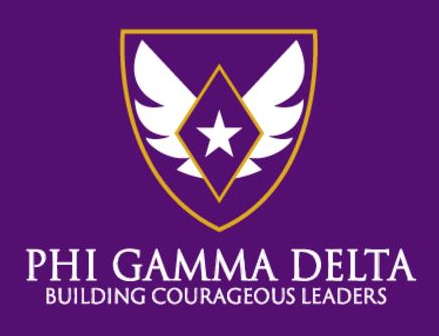
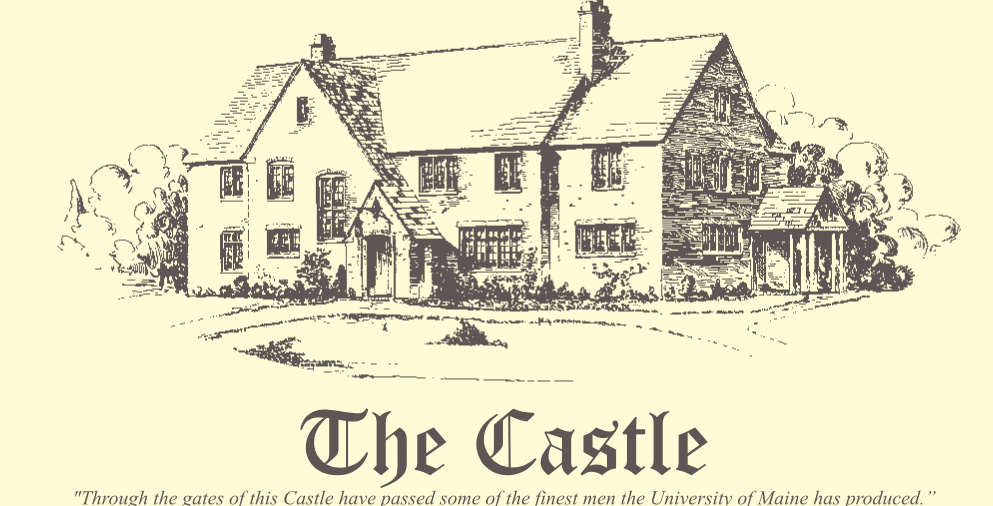


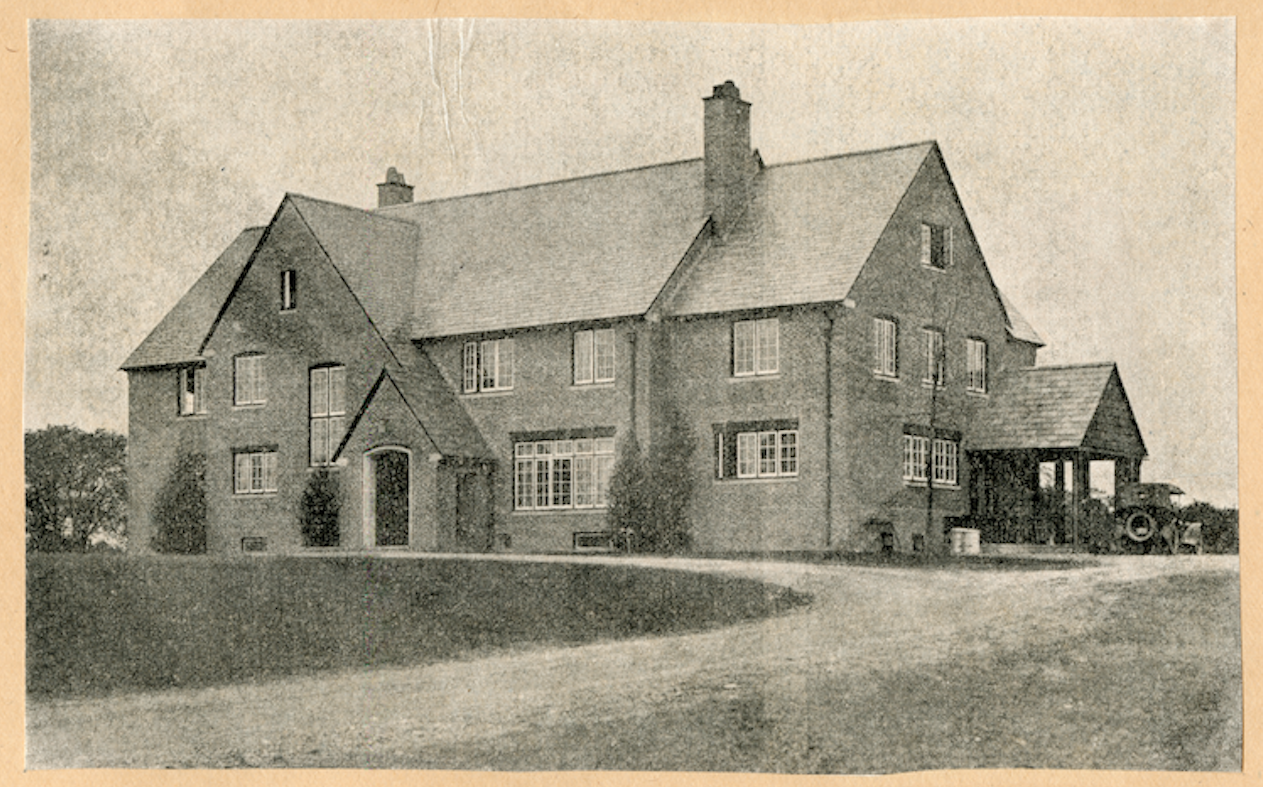
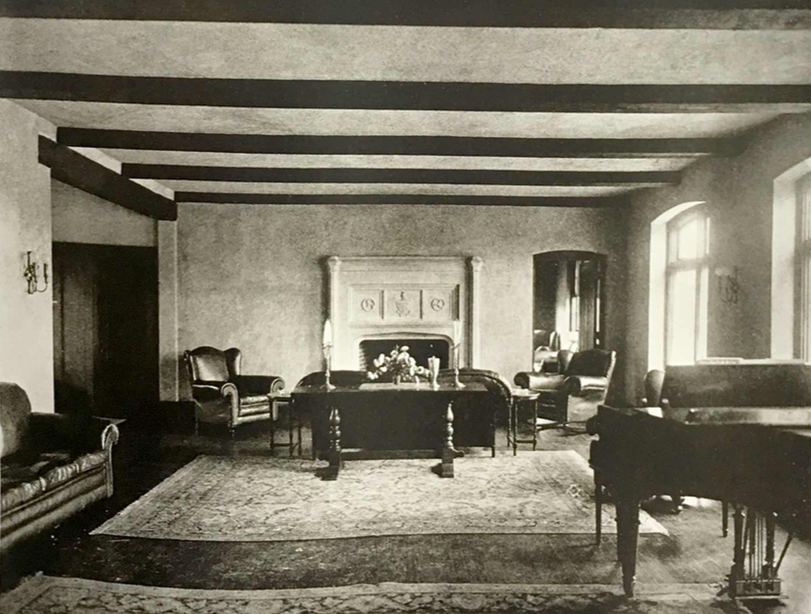
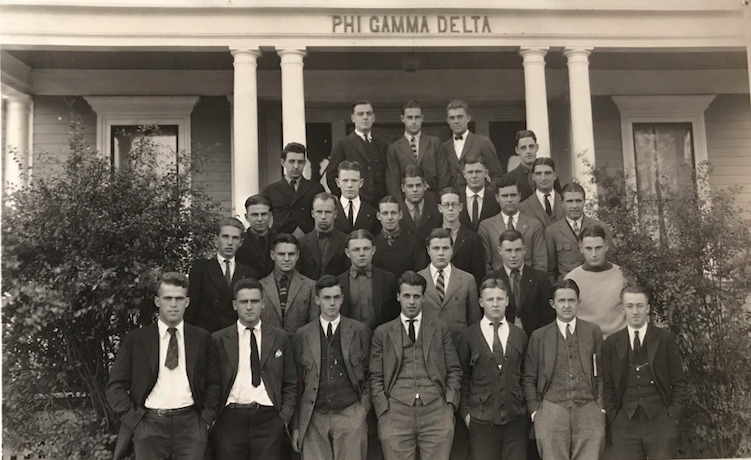
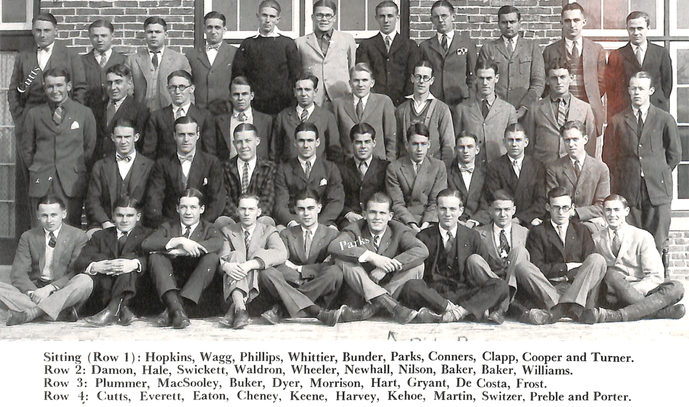








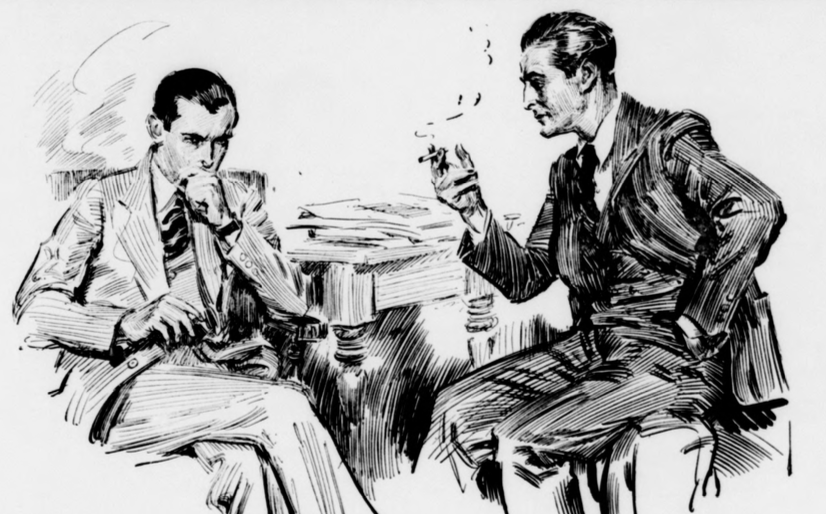

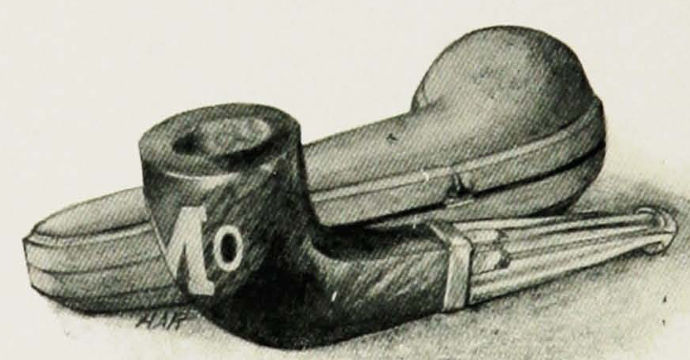










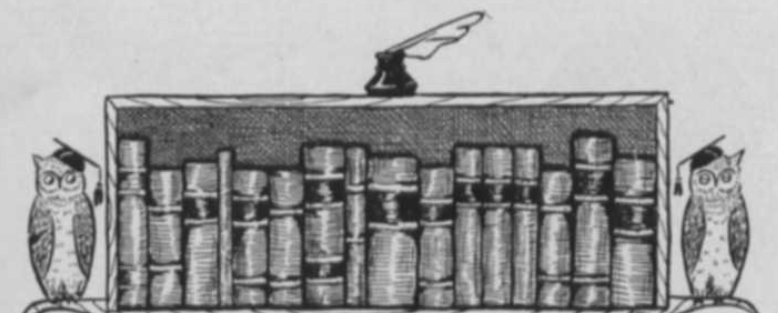

















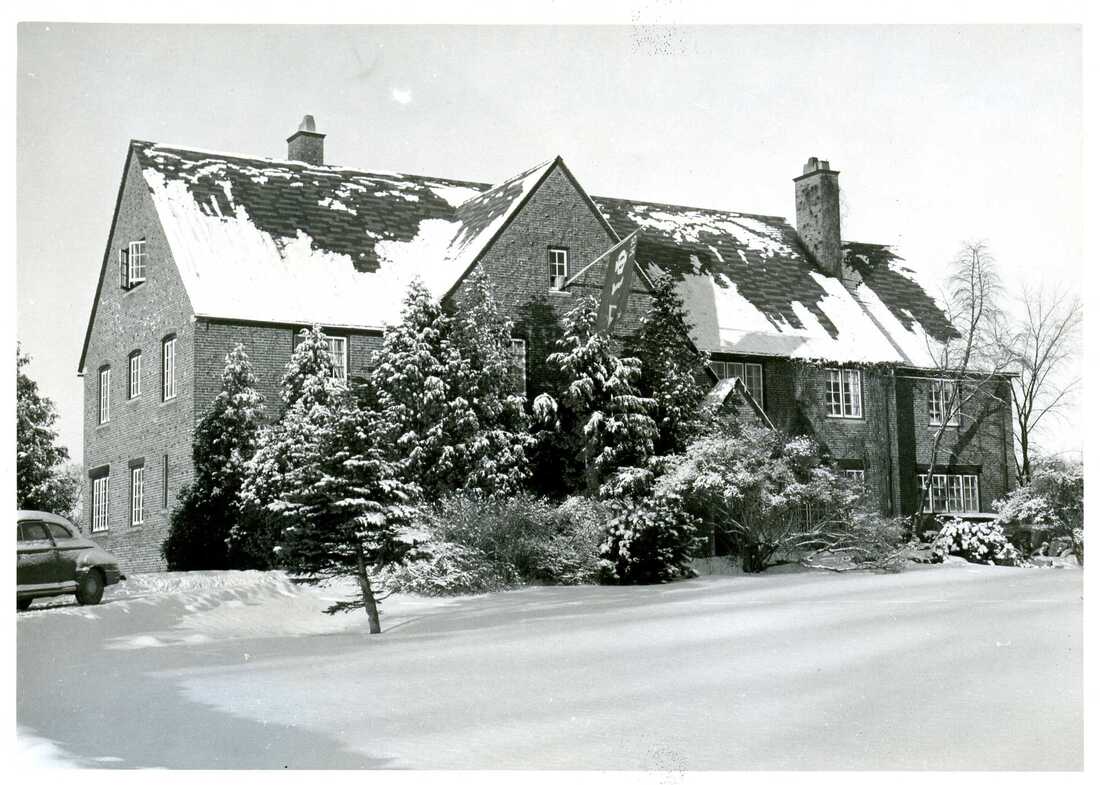






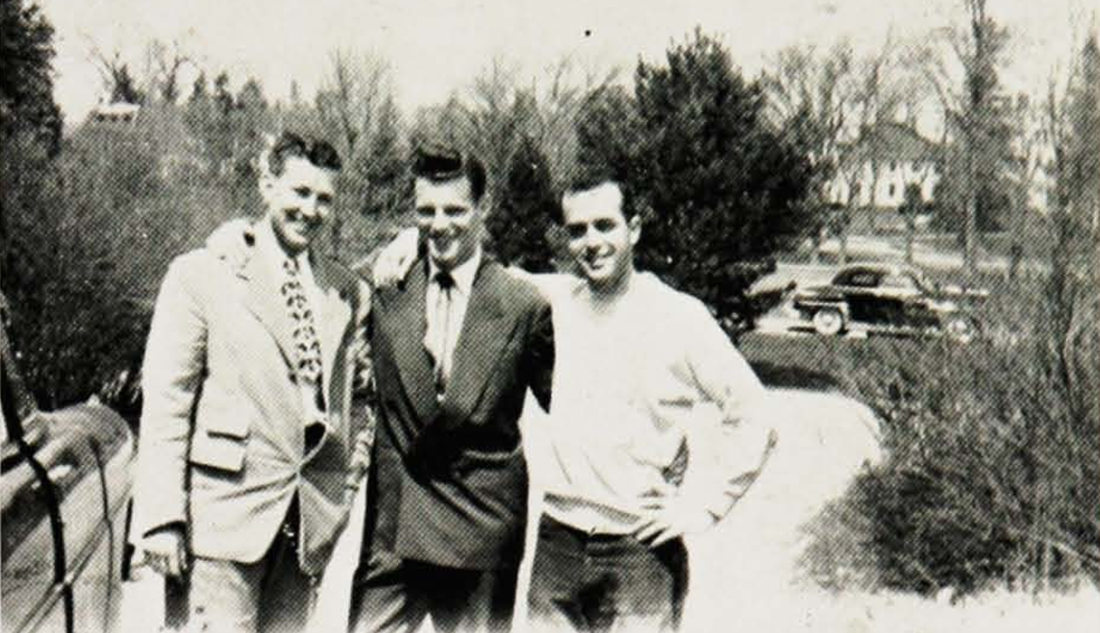
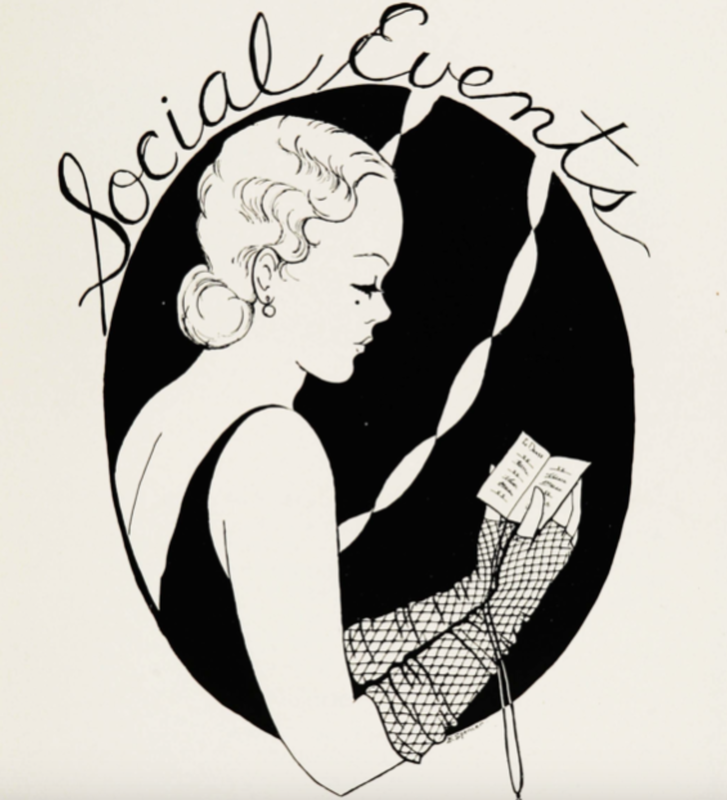
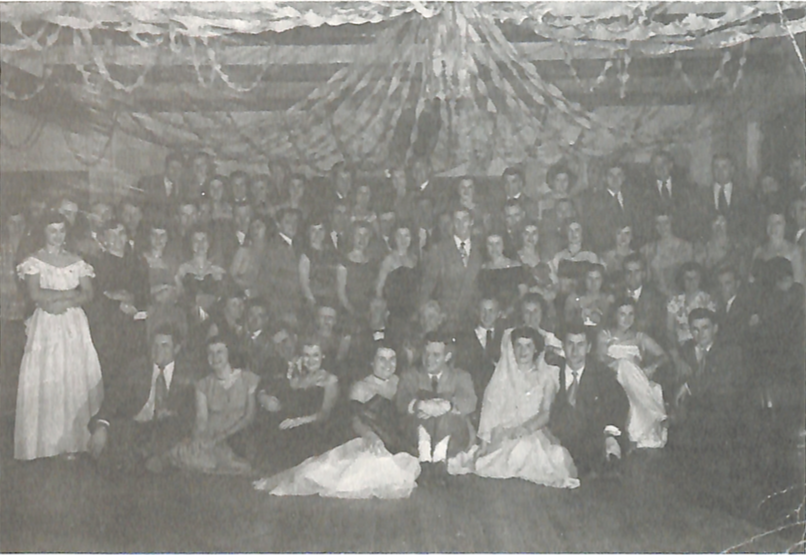


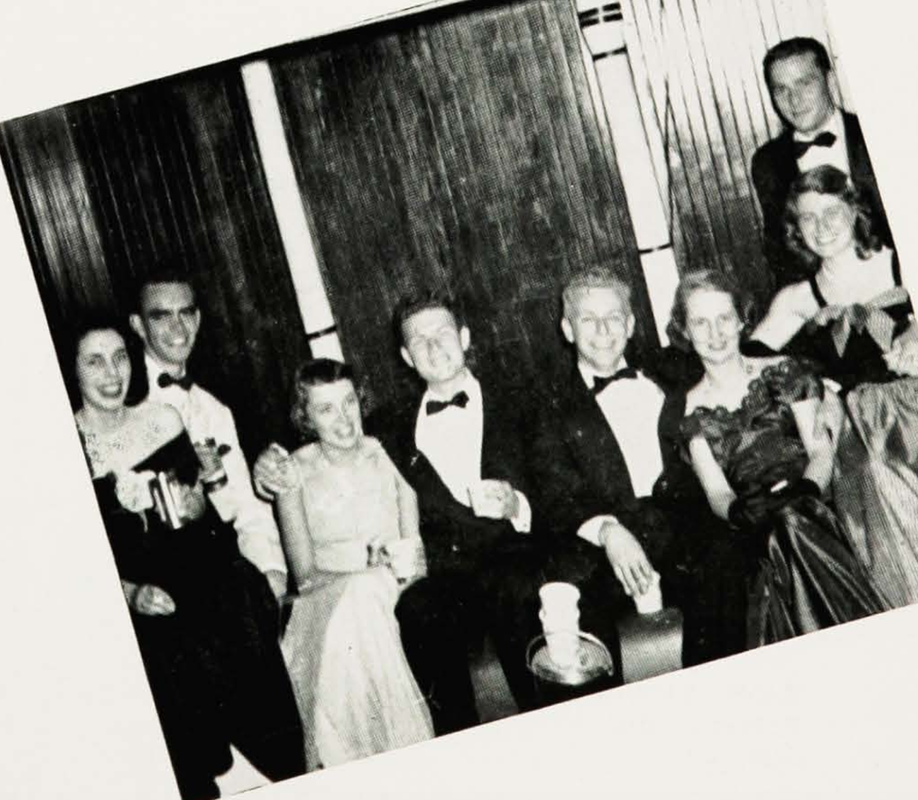



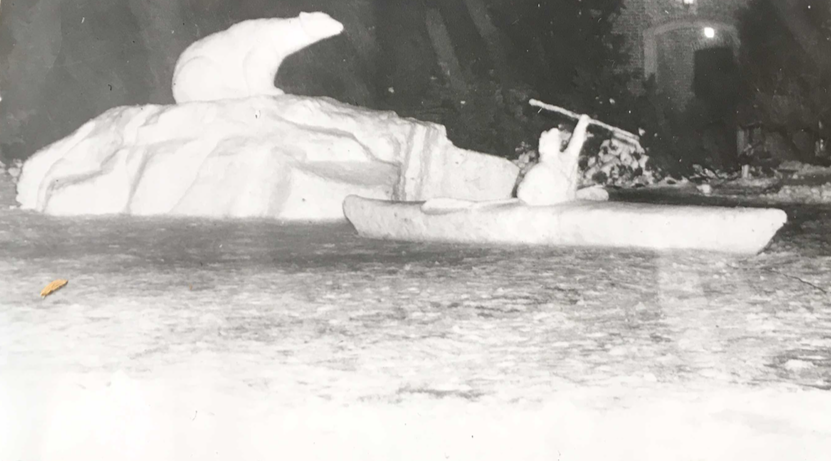

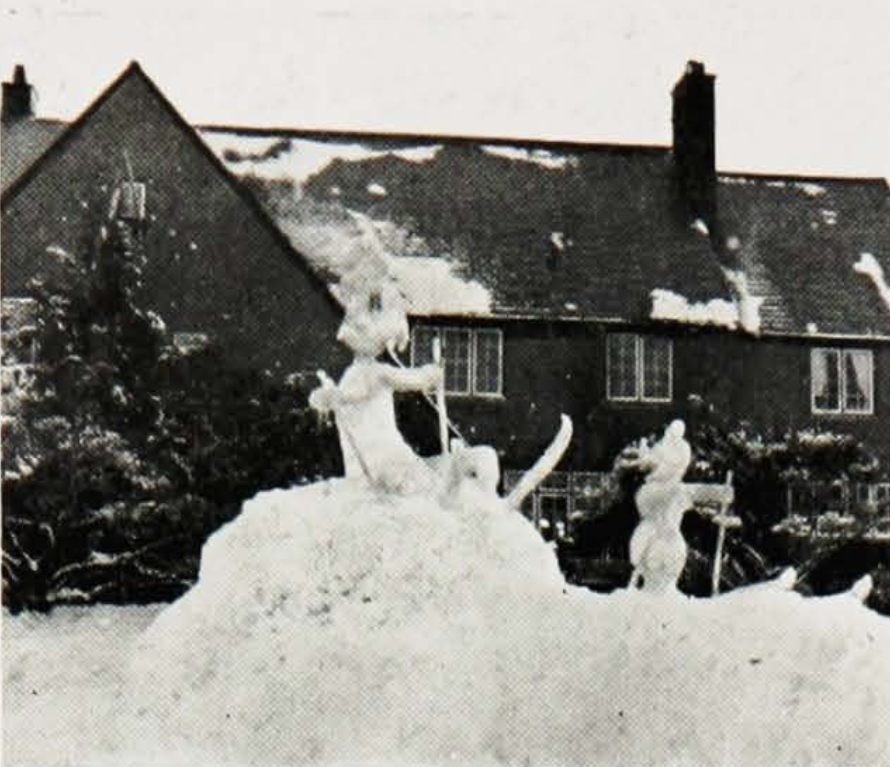


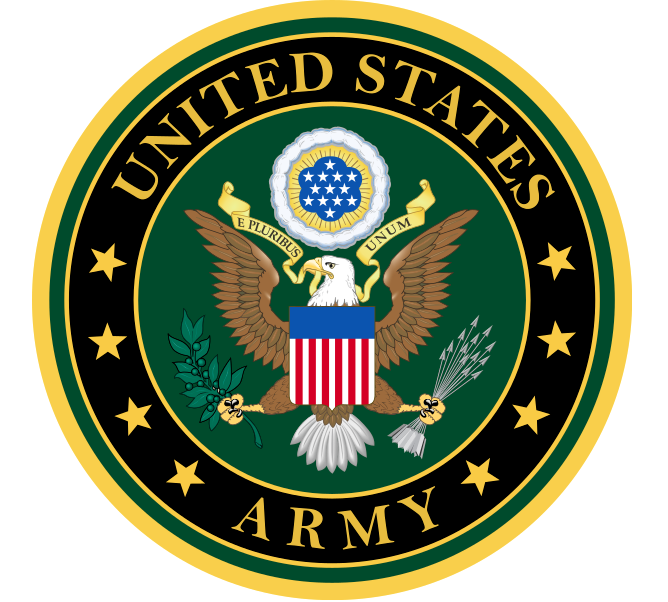










































































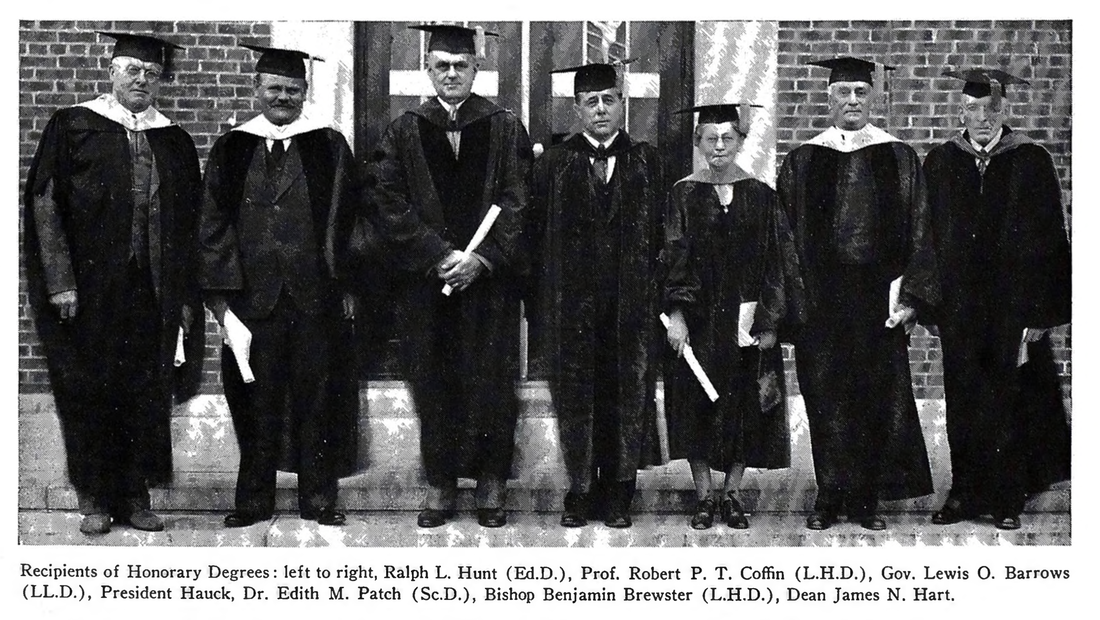


















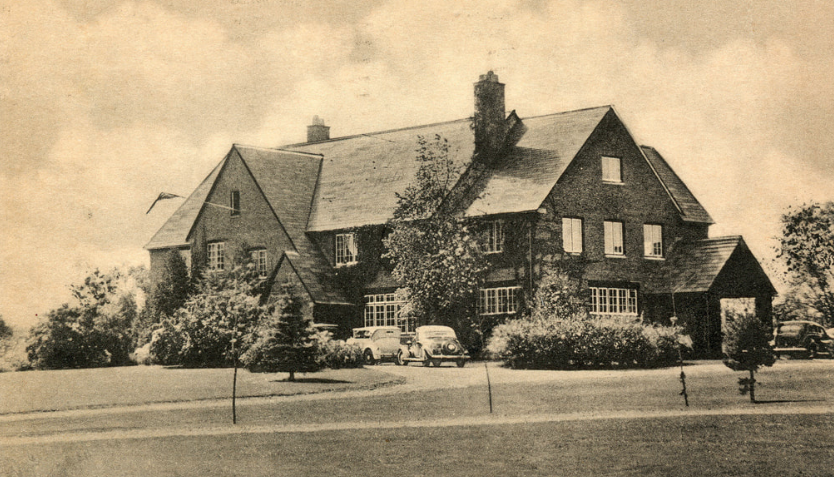














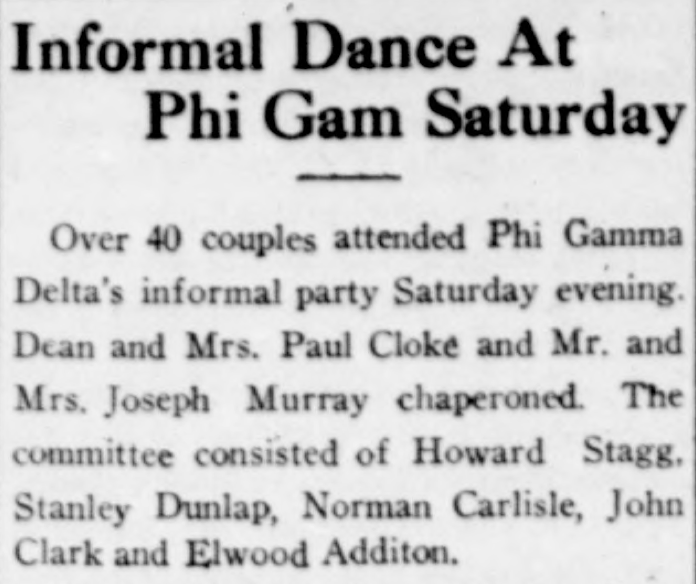



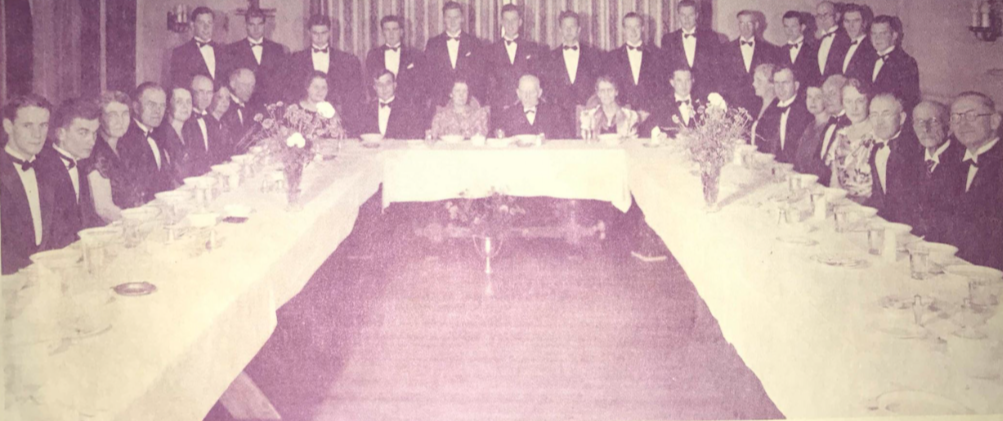




















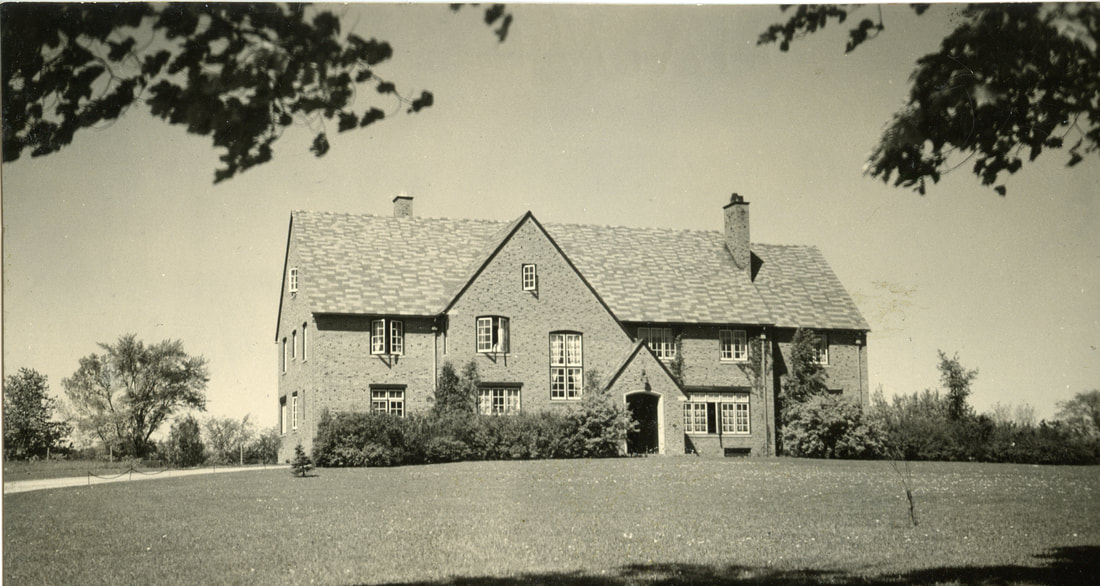









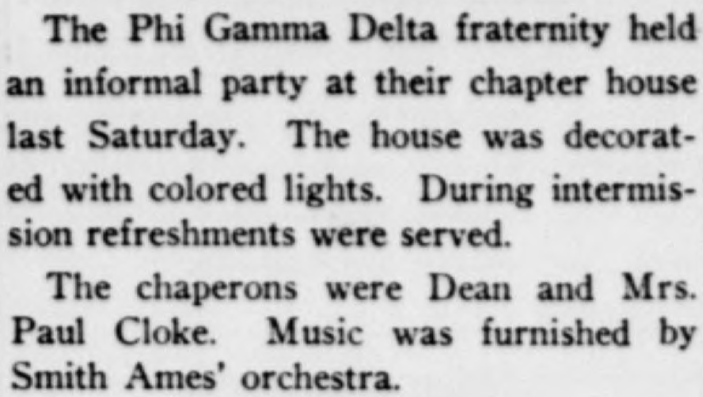











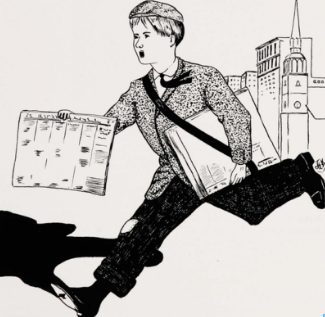






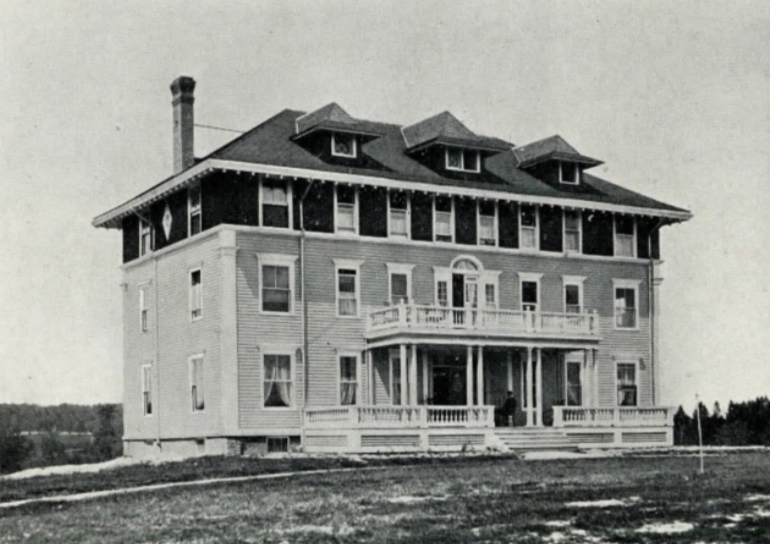


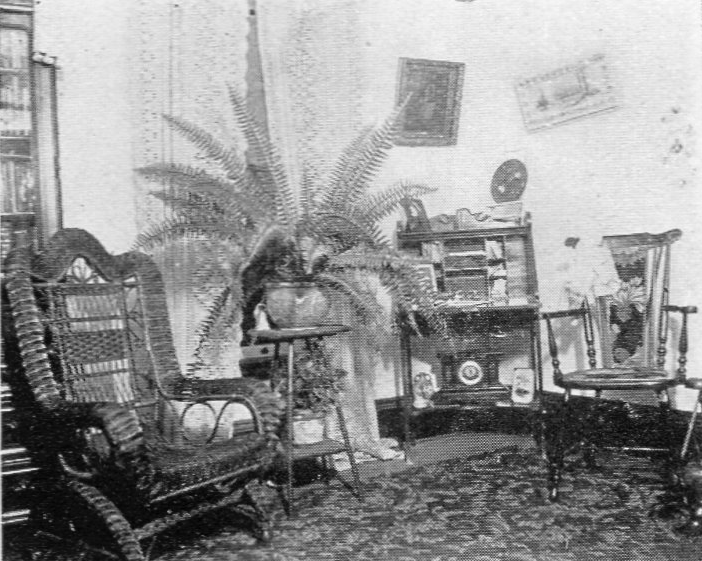




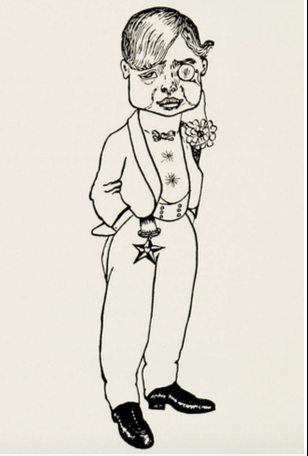





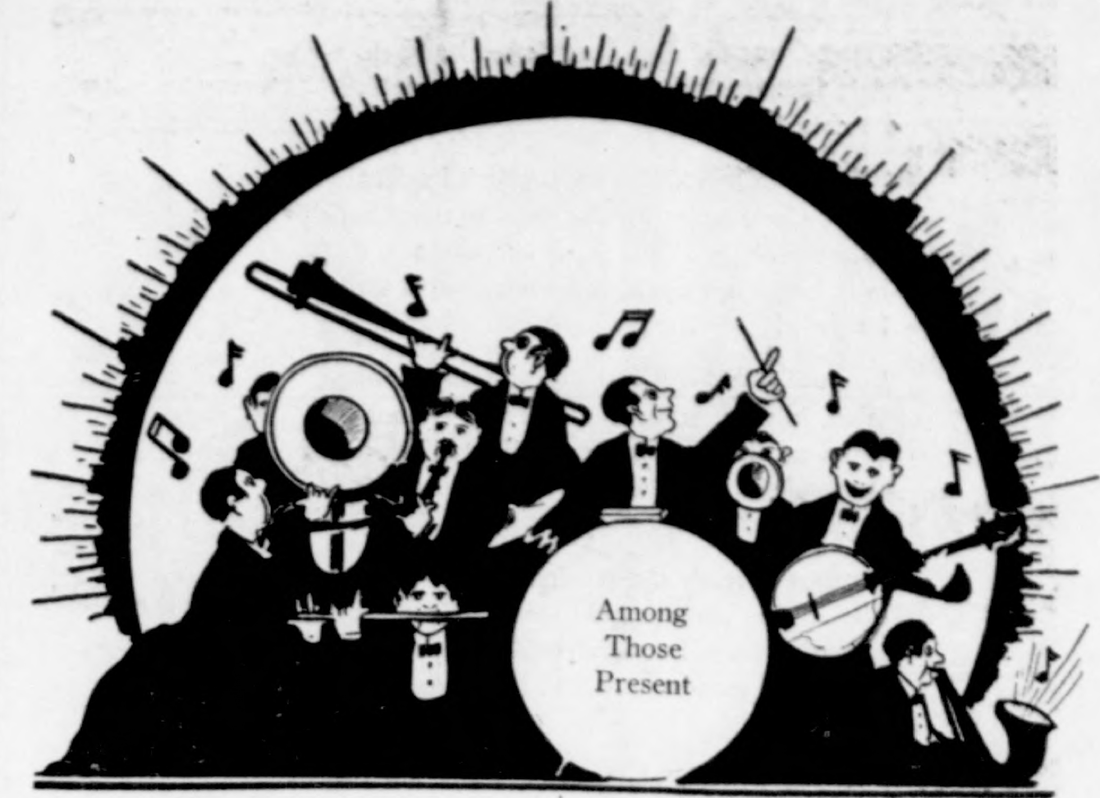





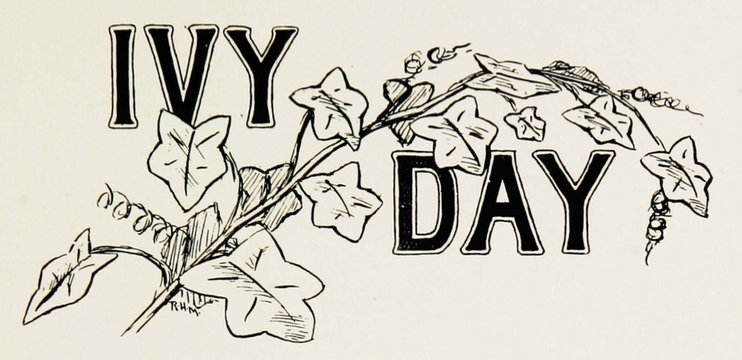

























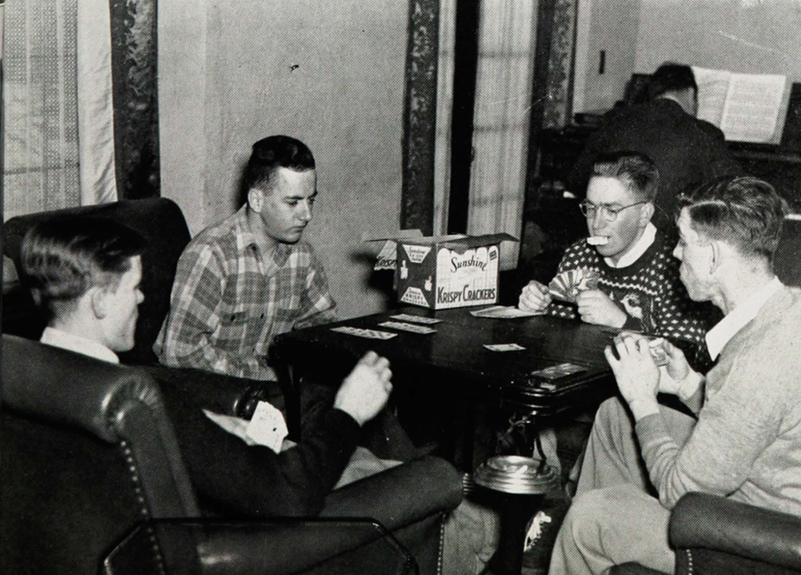





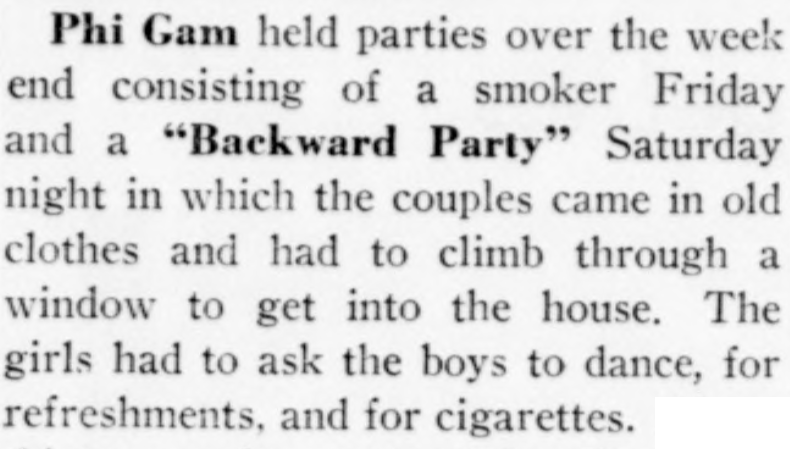
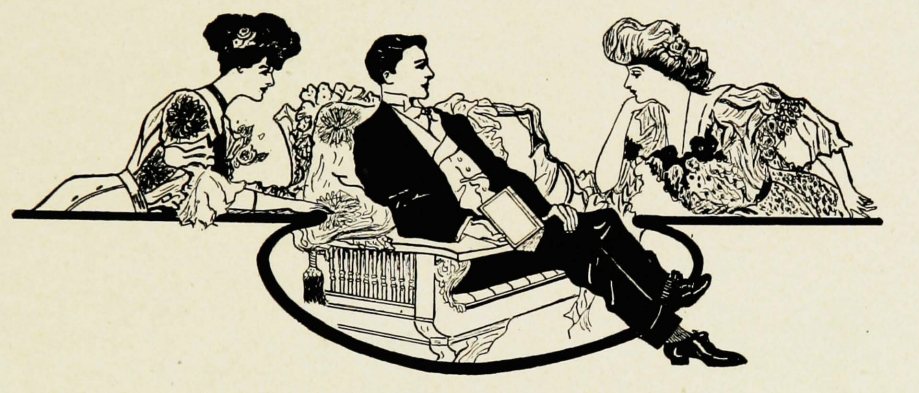








































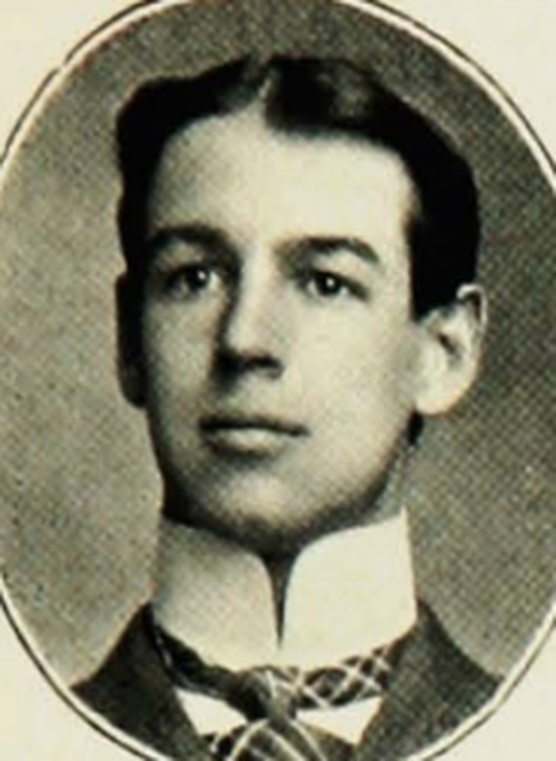


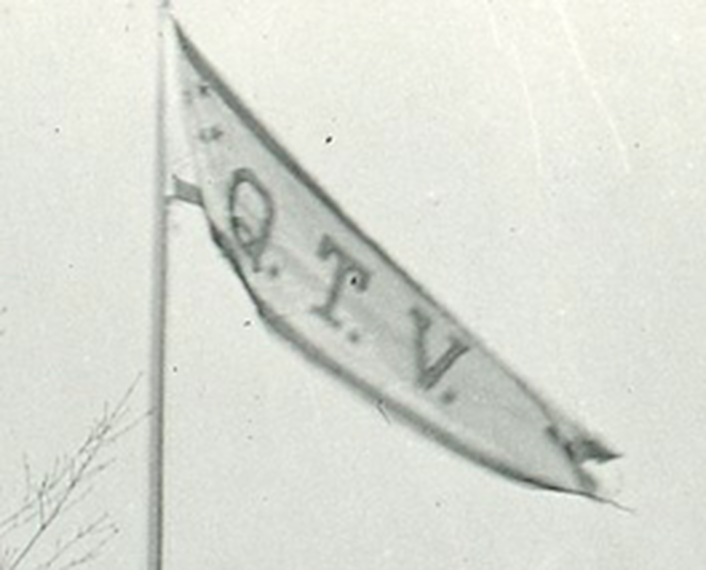
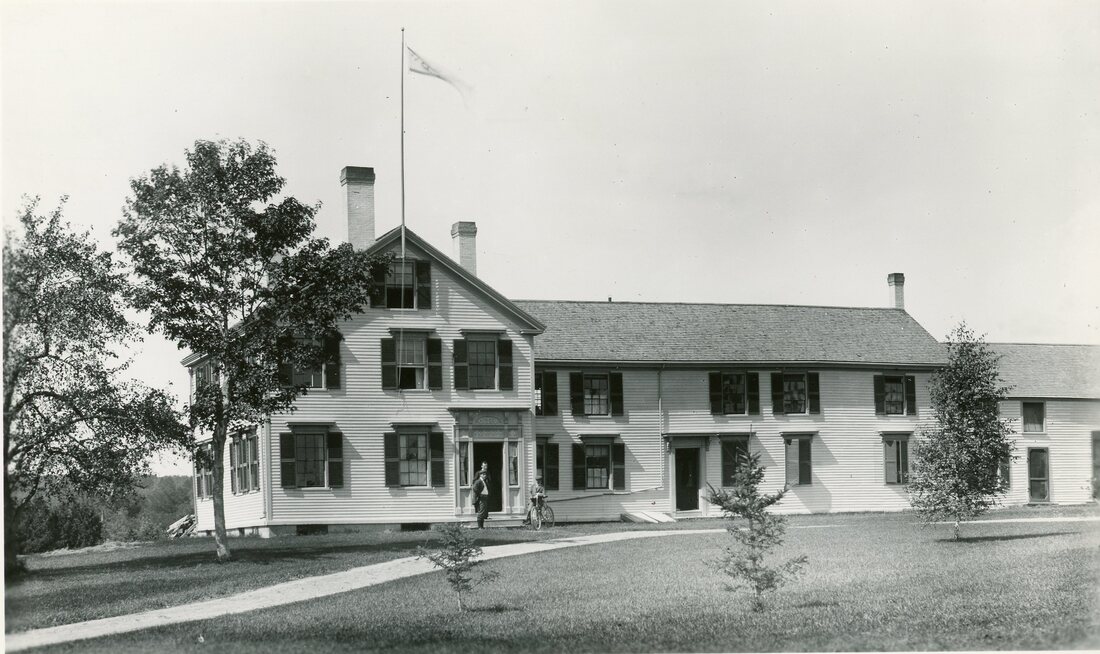
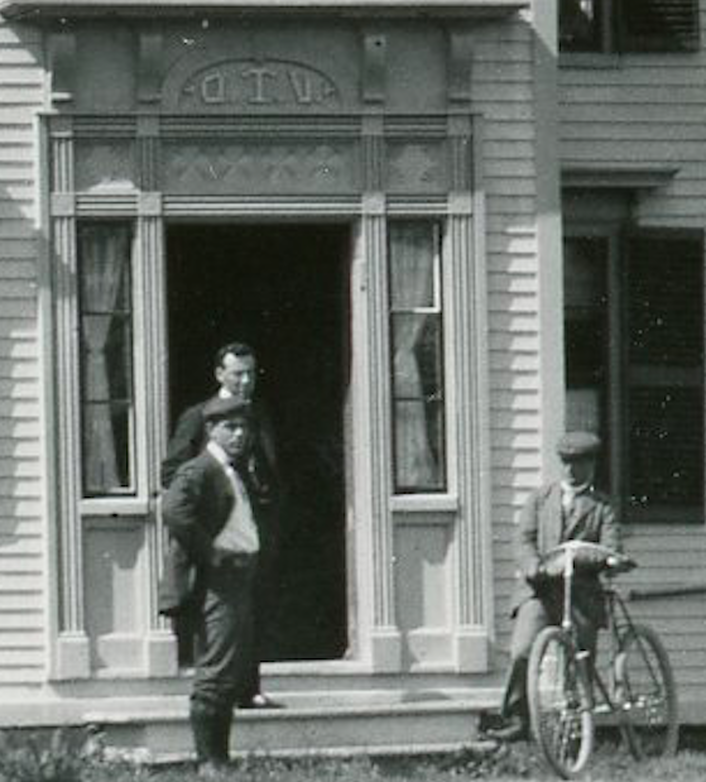
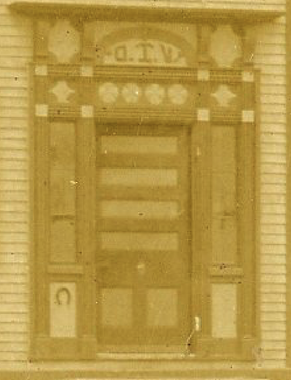
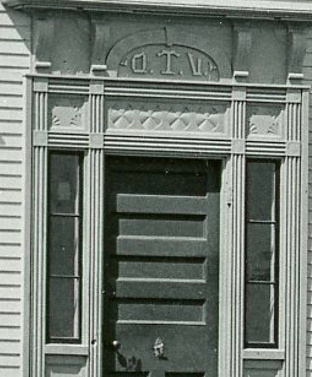

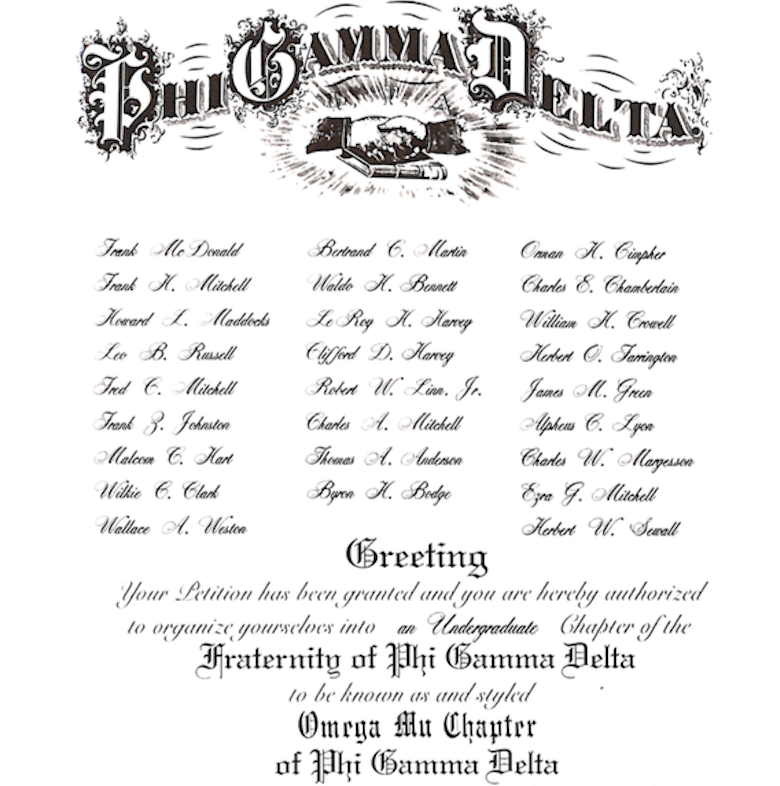
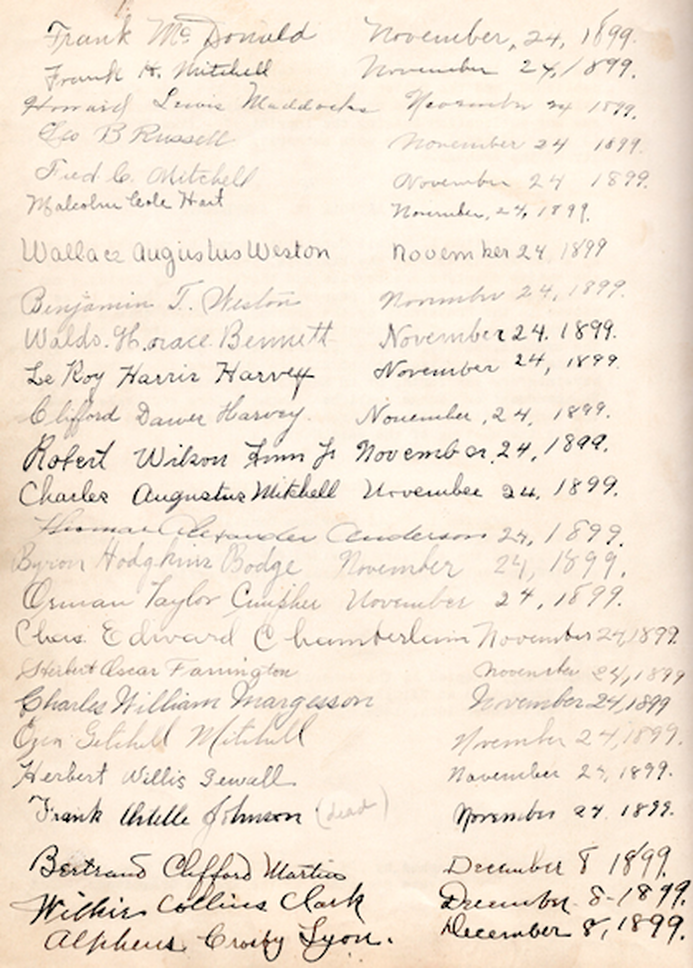





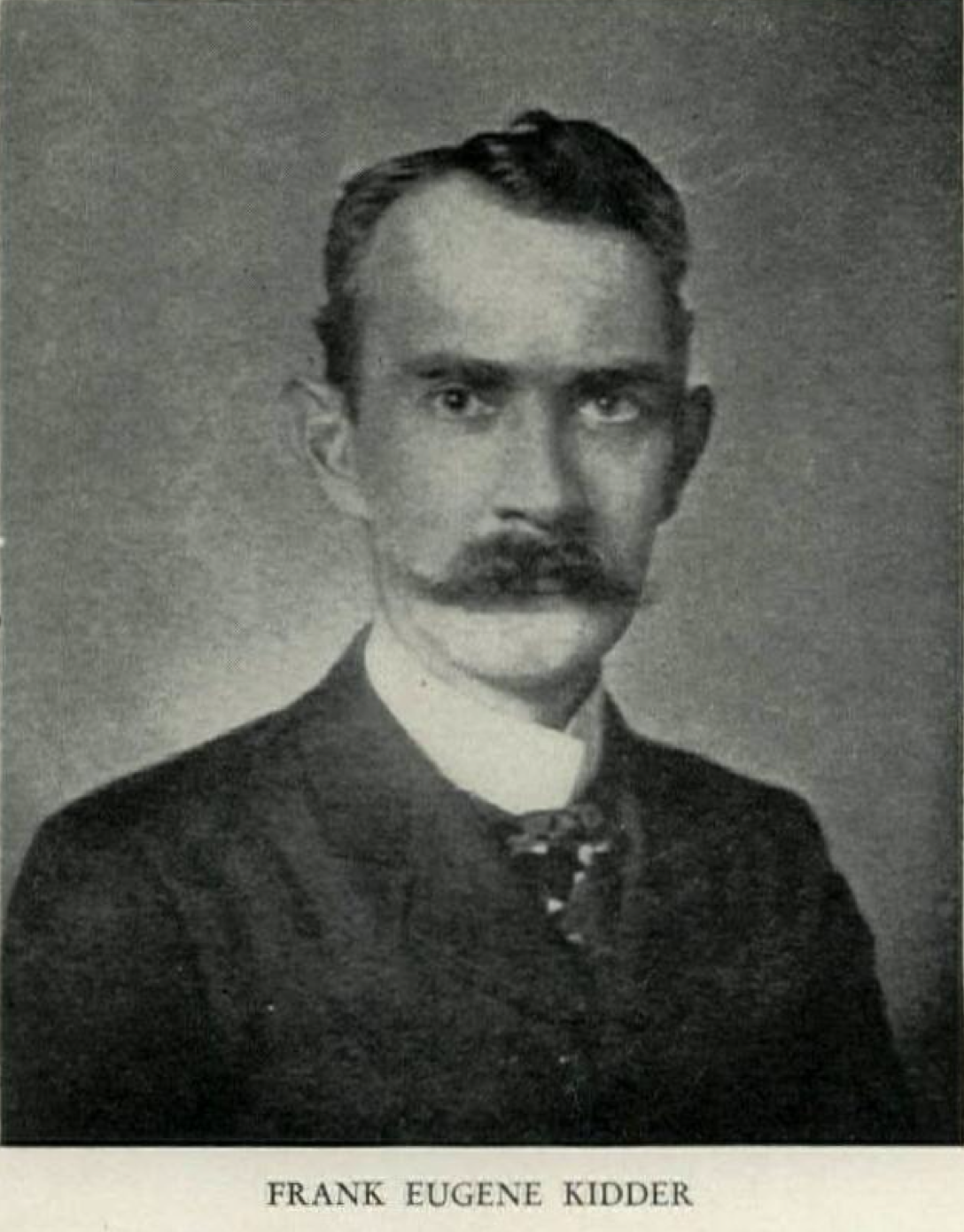










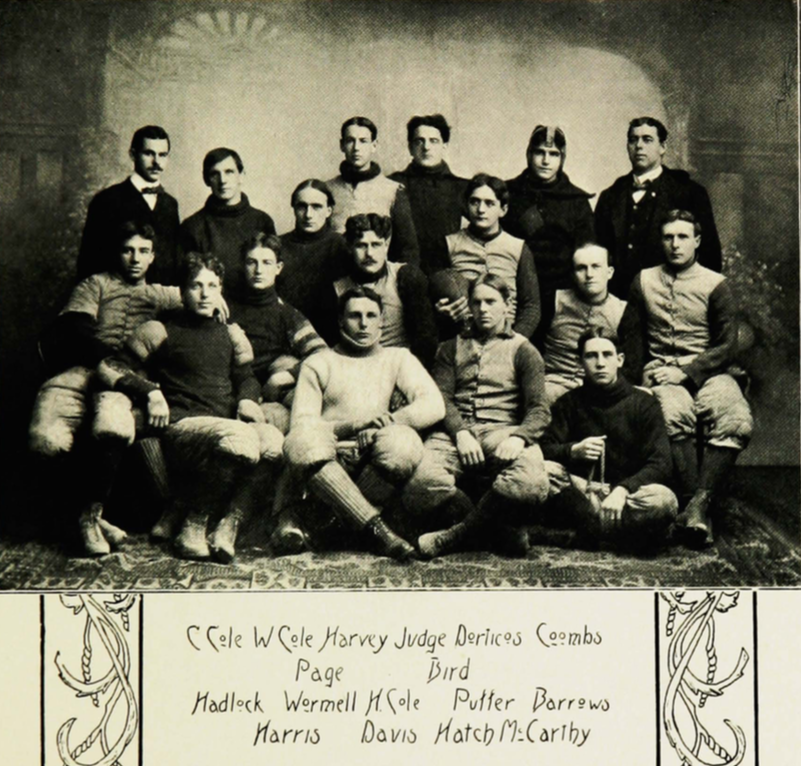
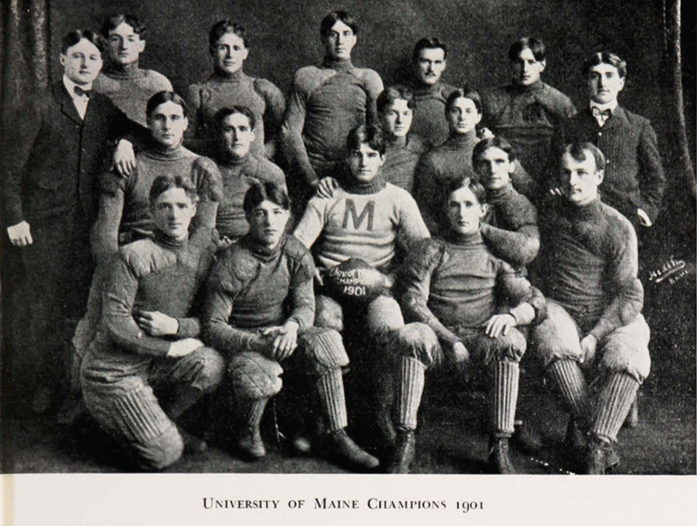

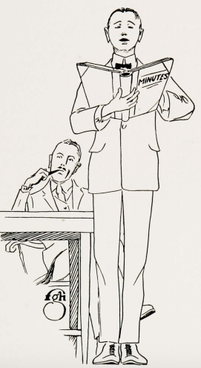
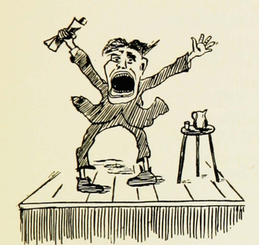
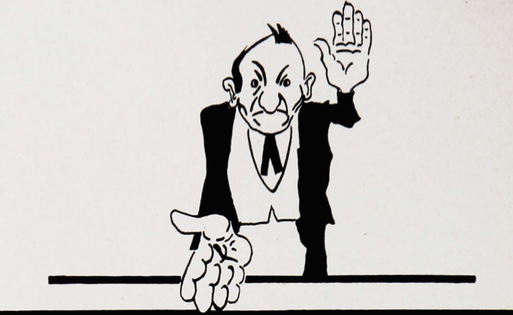
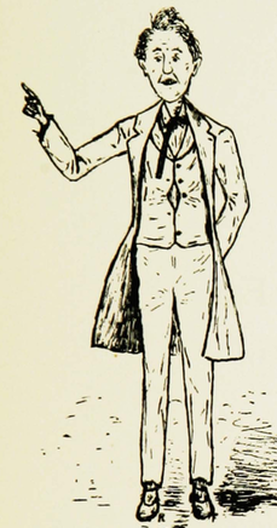
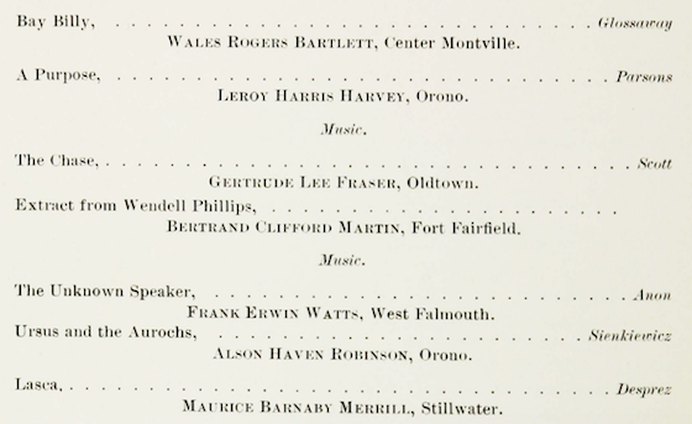

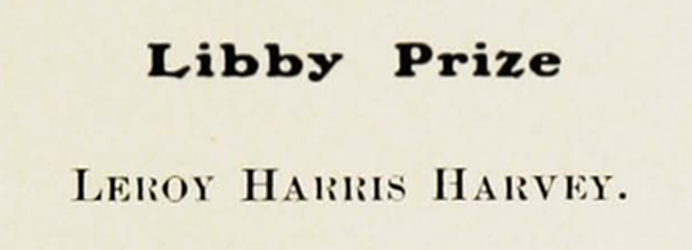
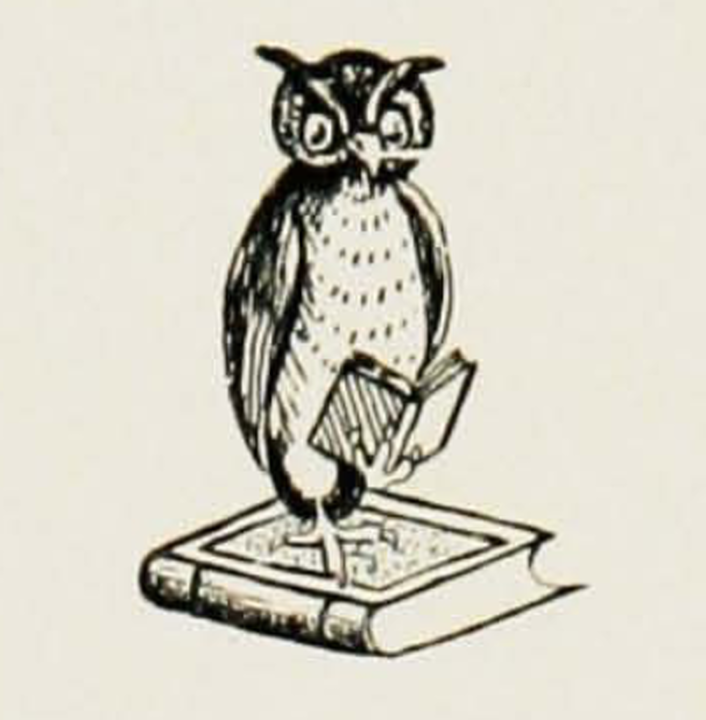
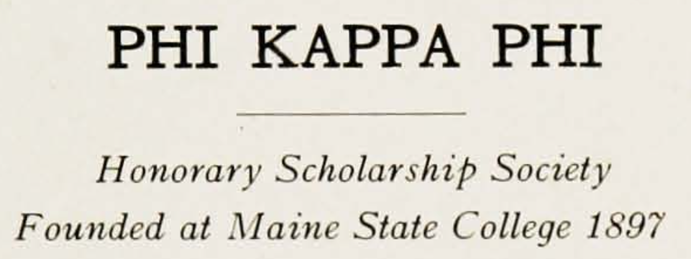

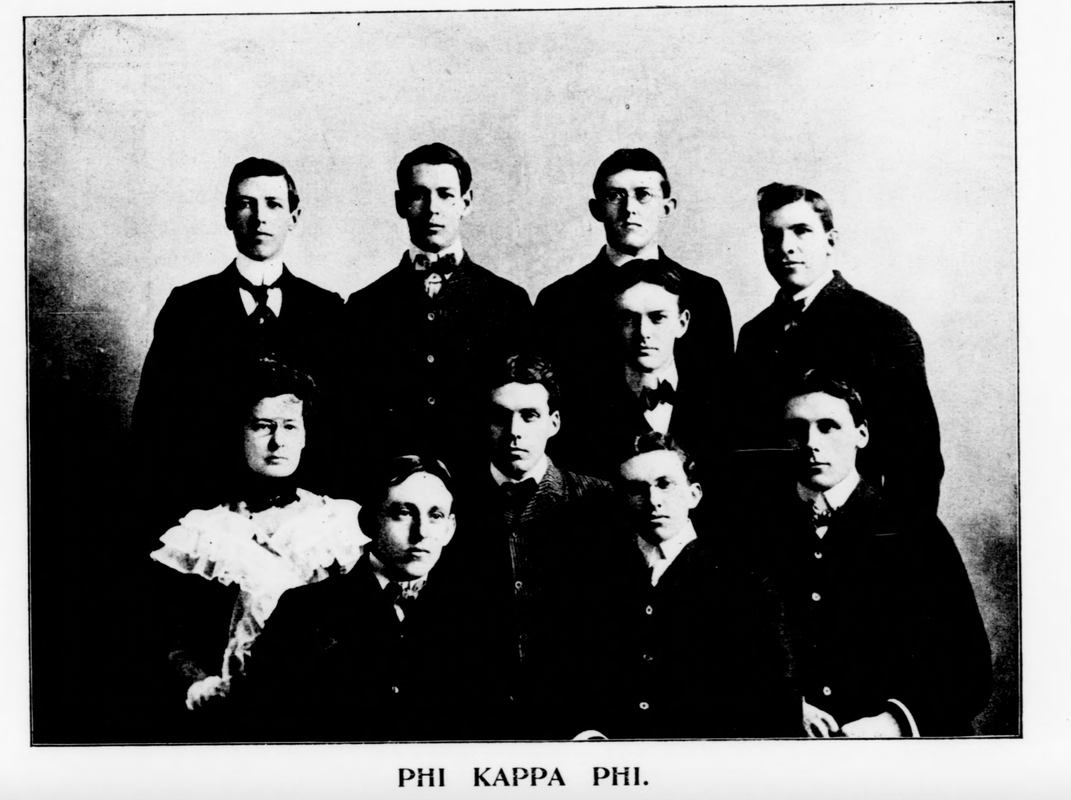

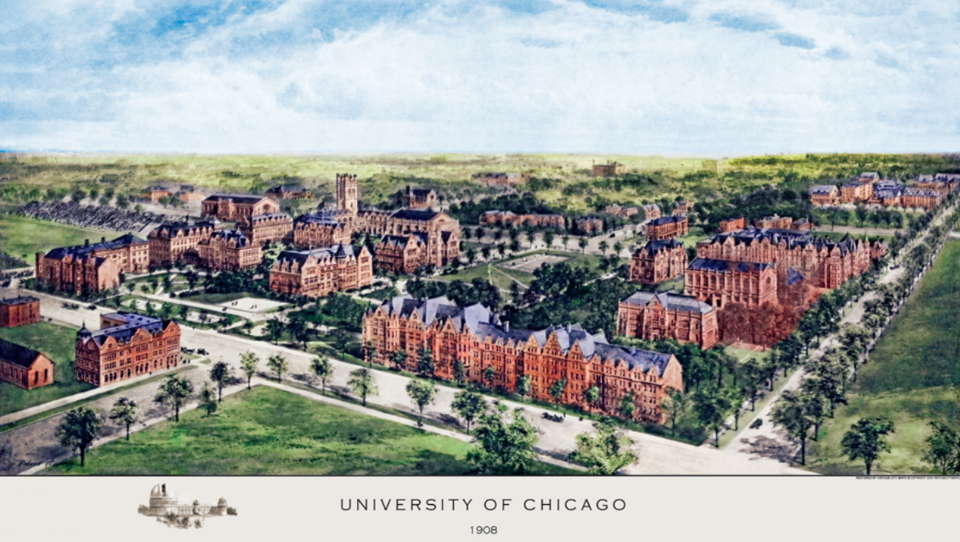
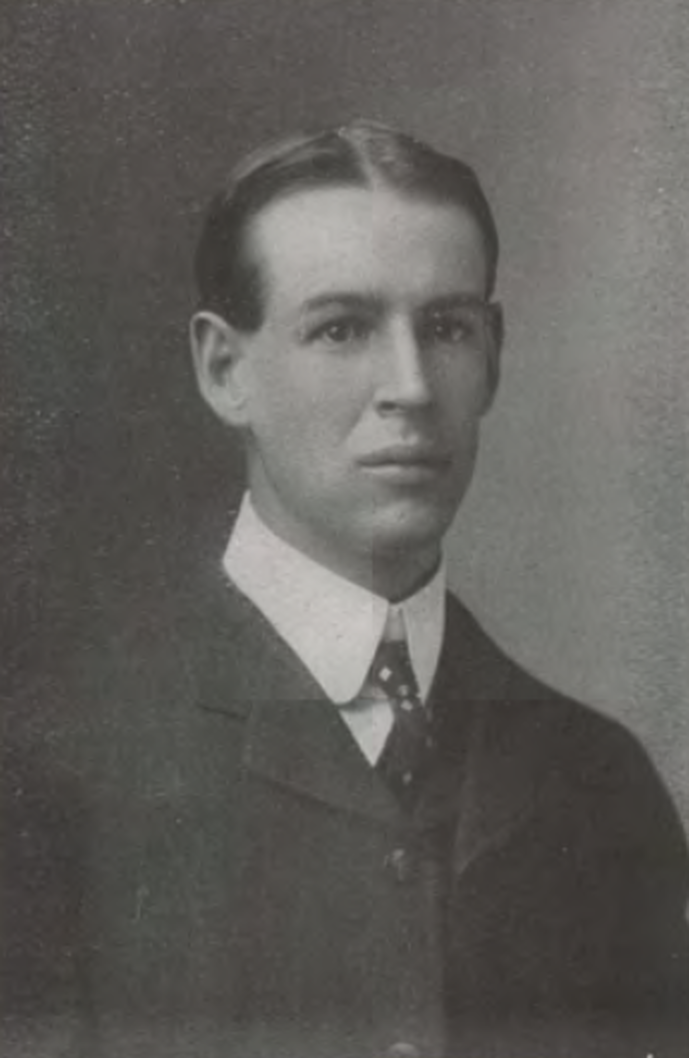
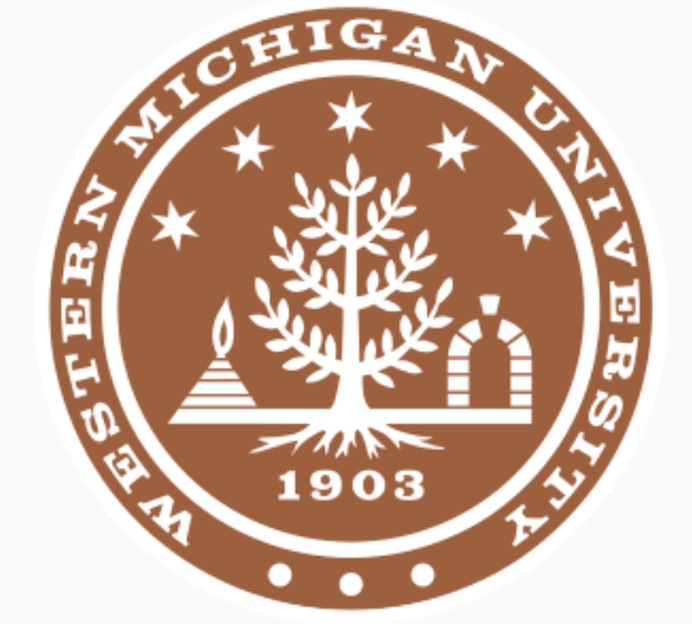
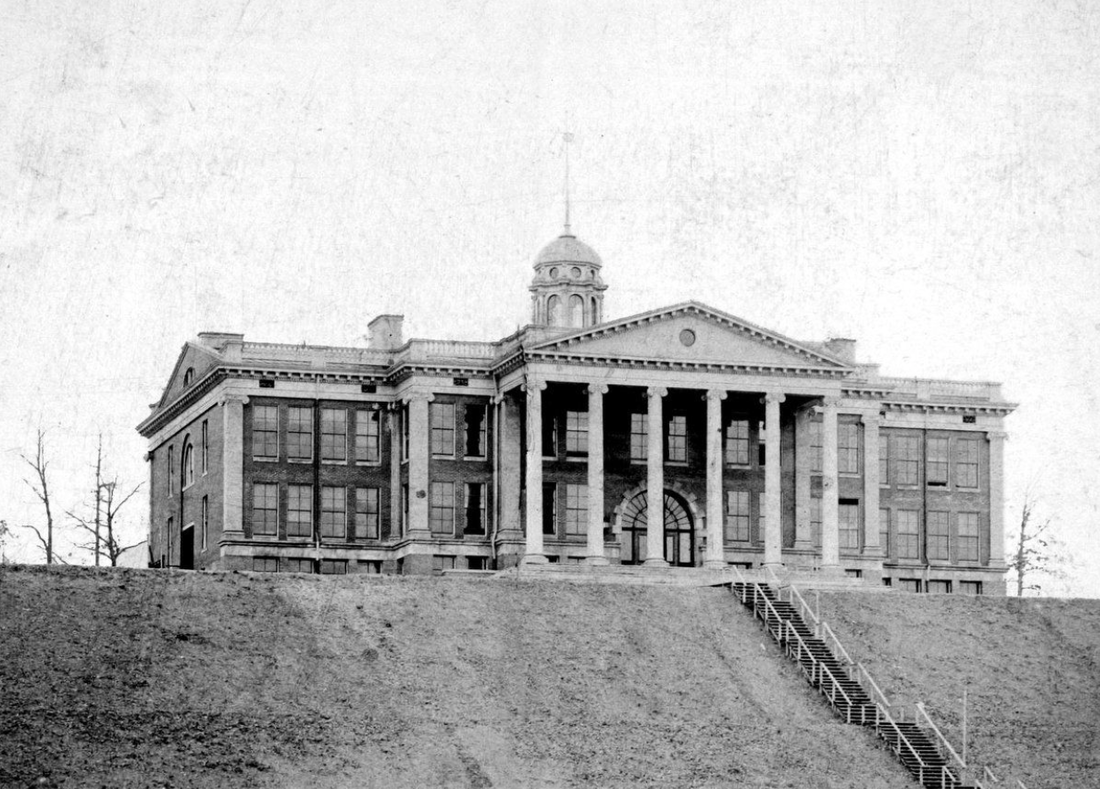
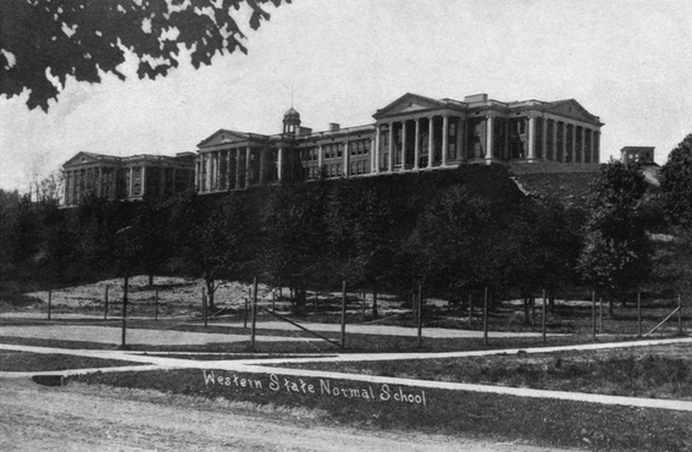


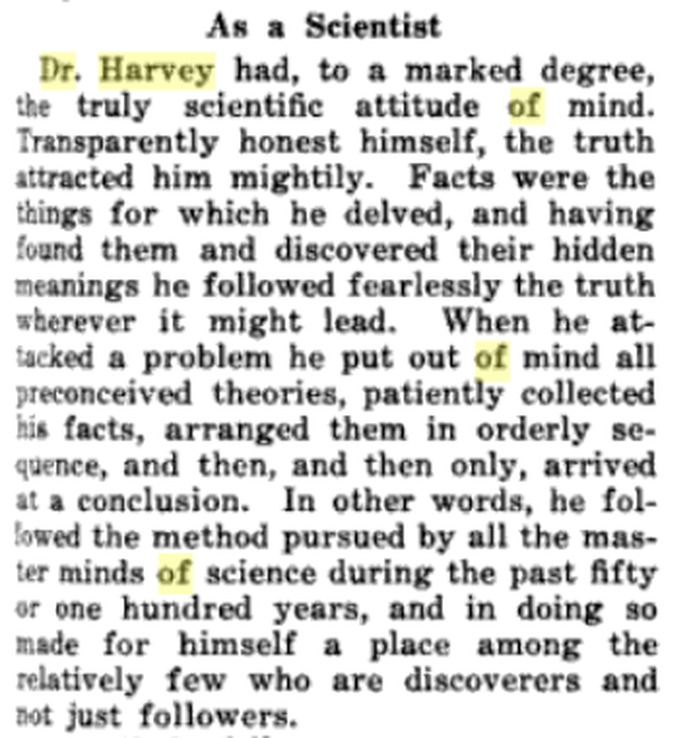
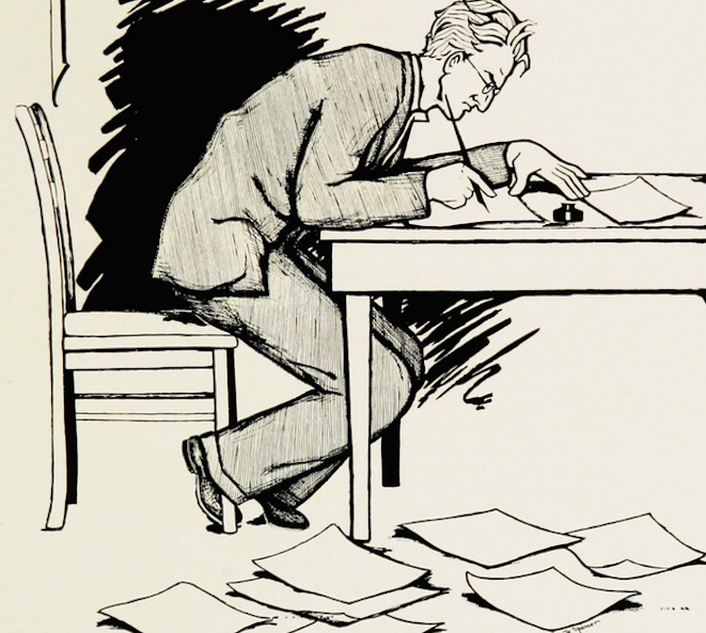

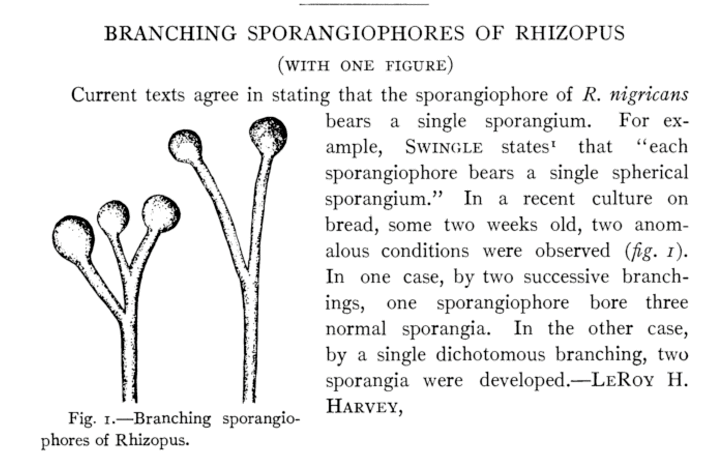

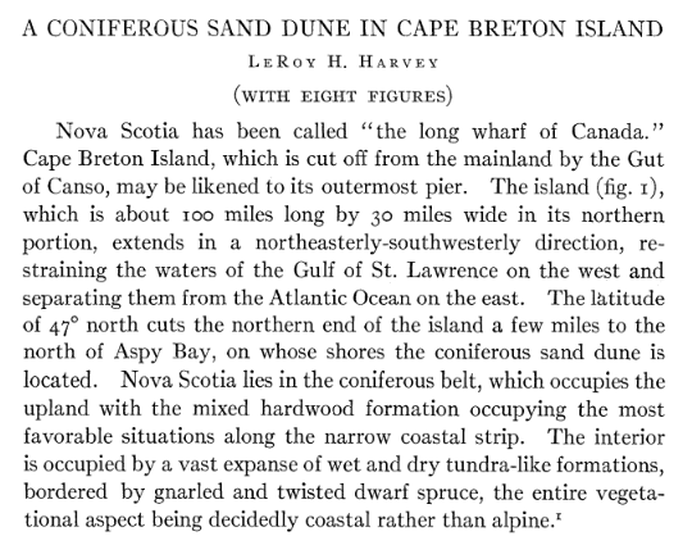

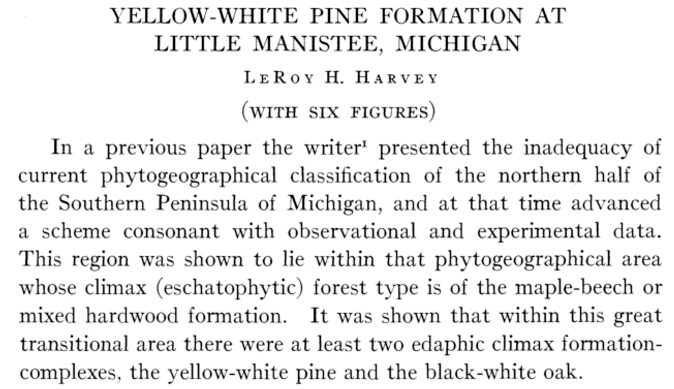
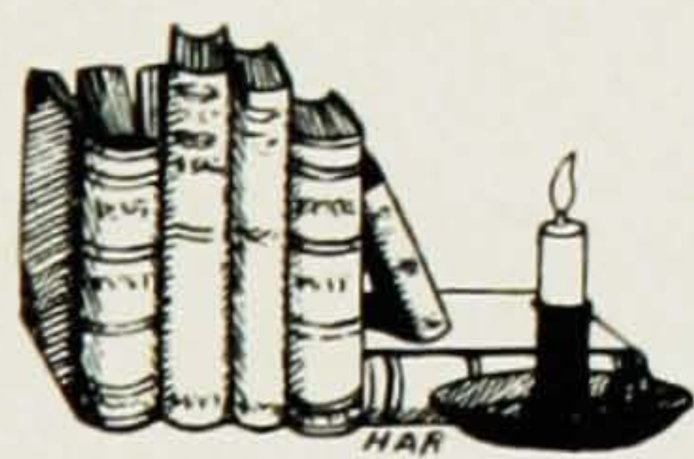

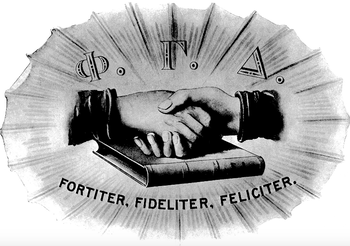

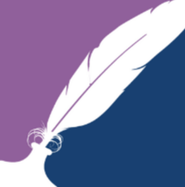
 RSS Feed
RSS Feed